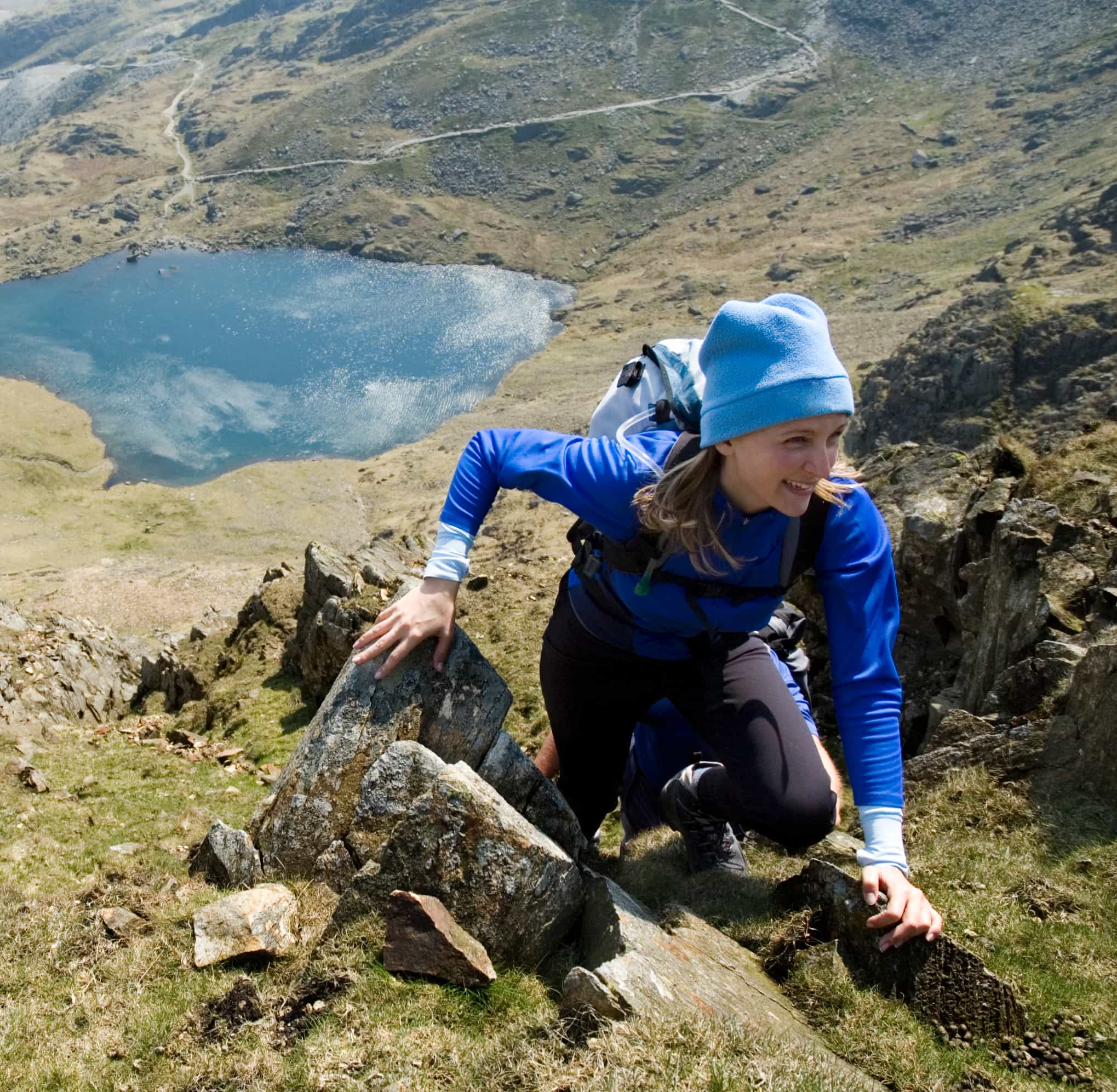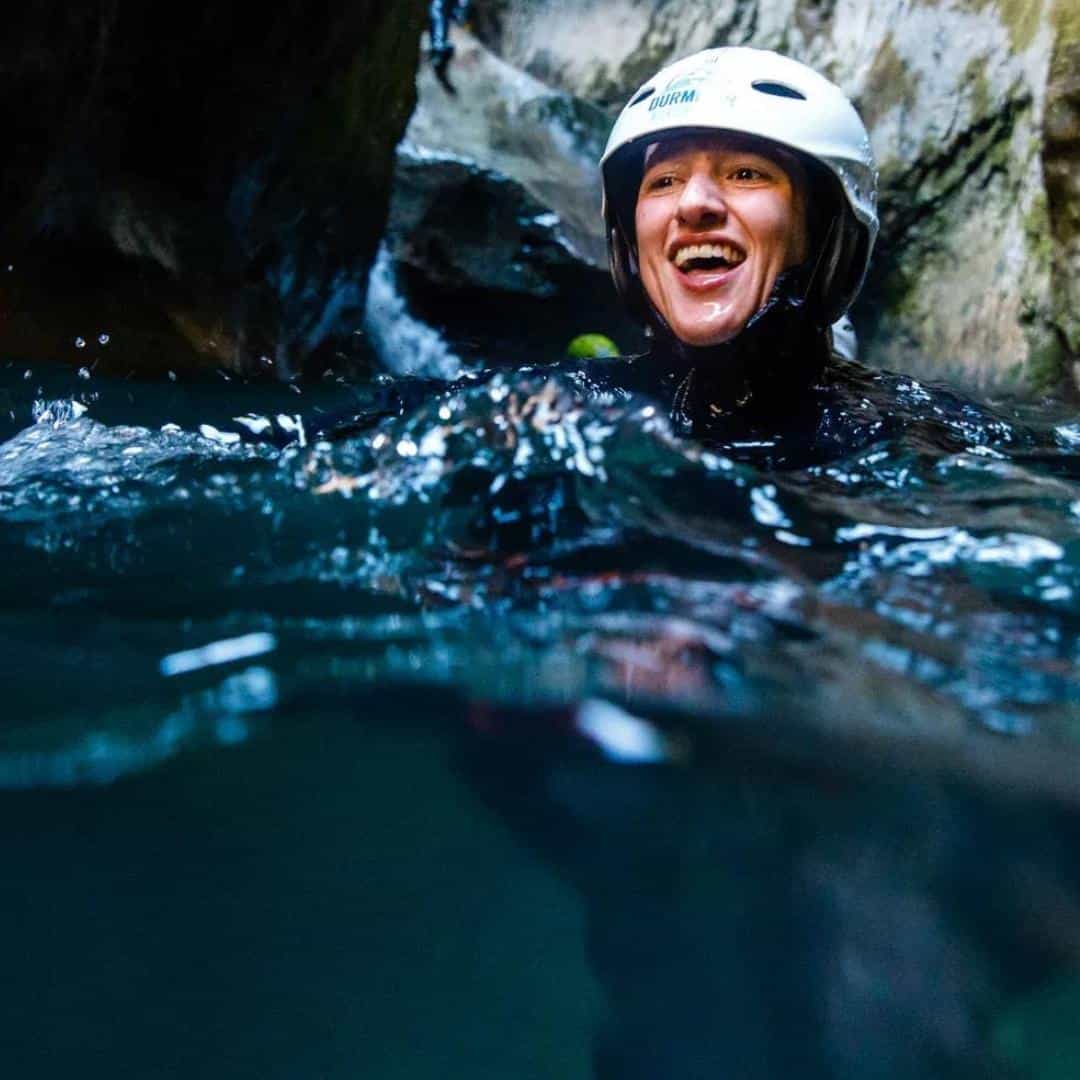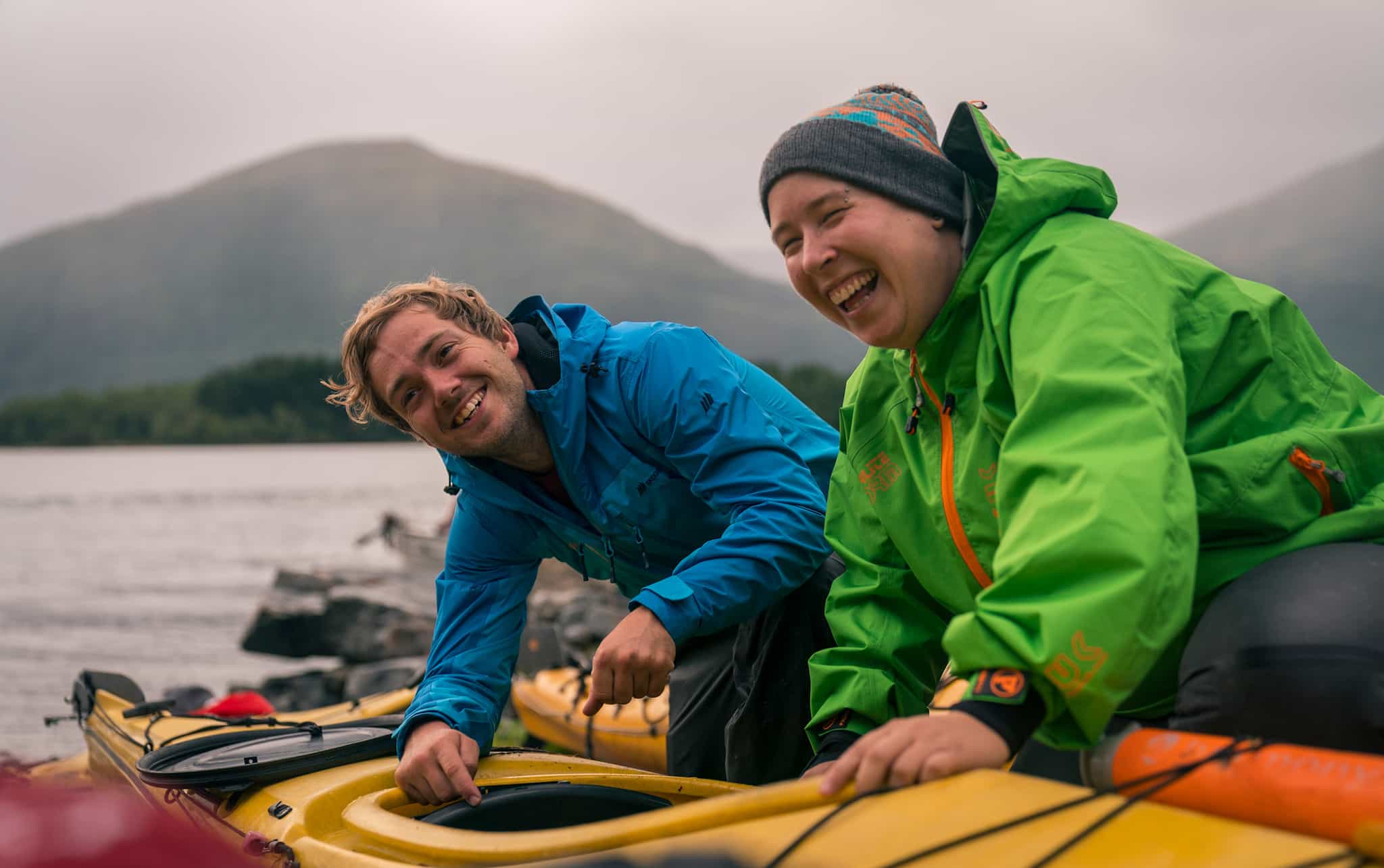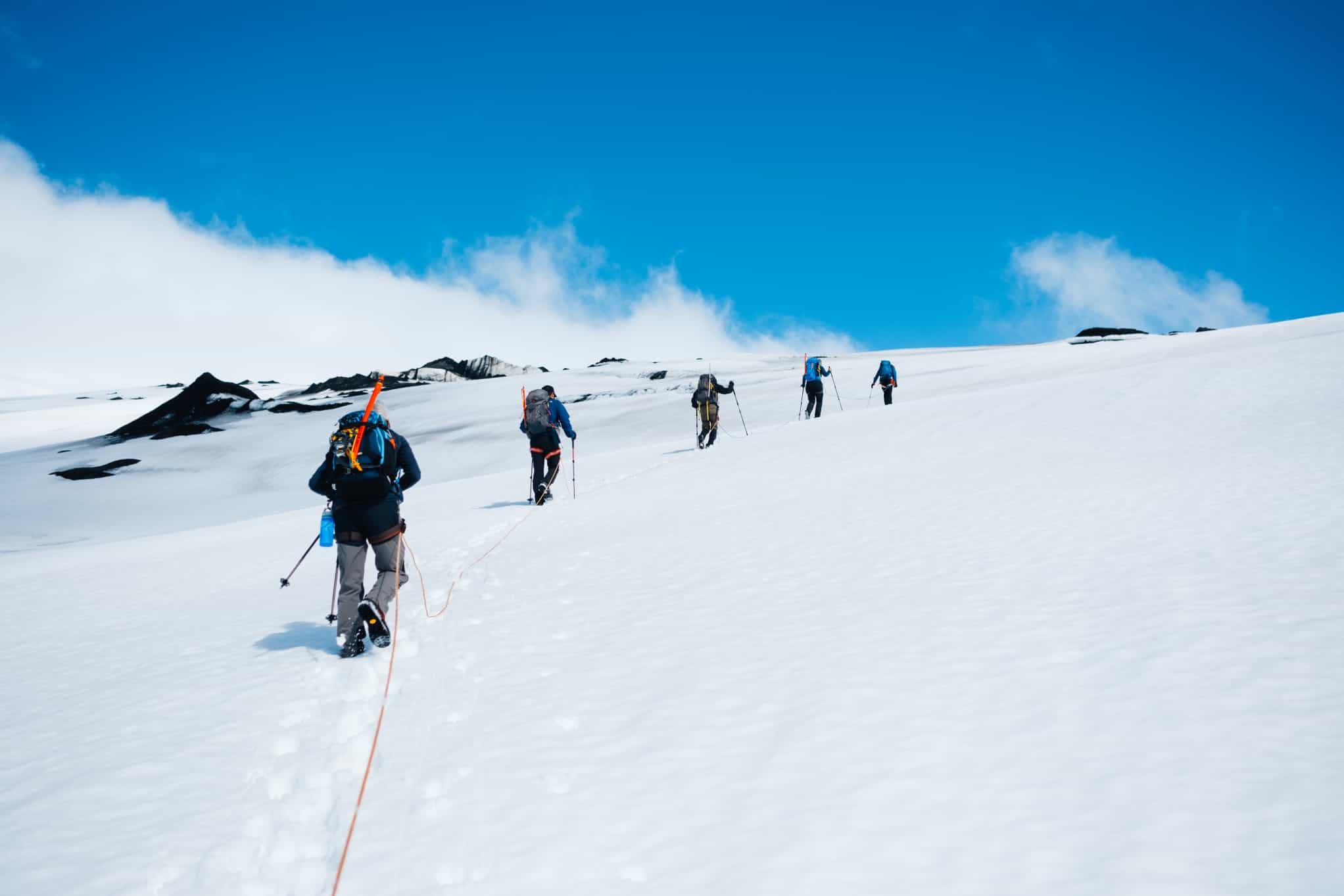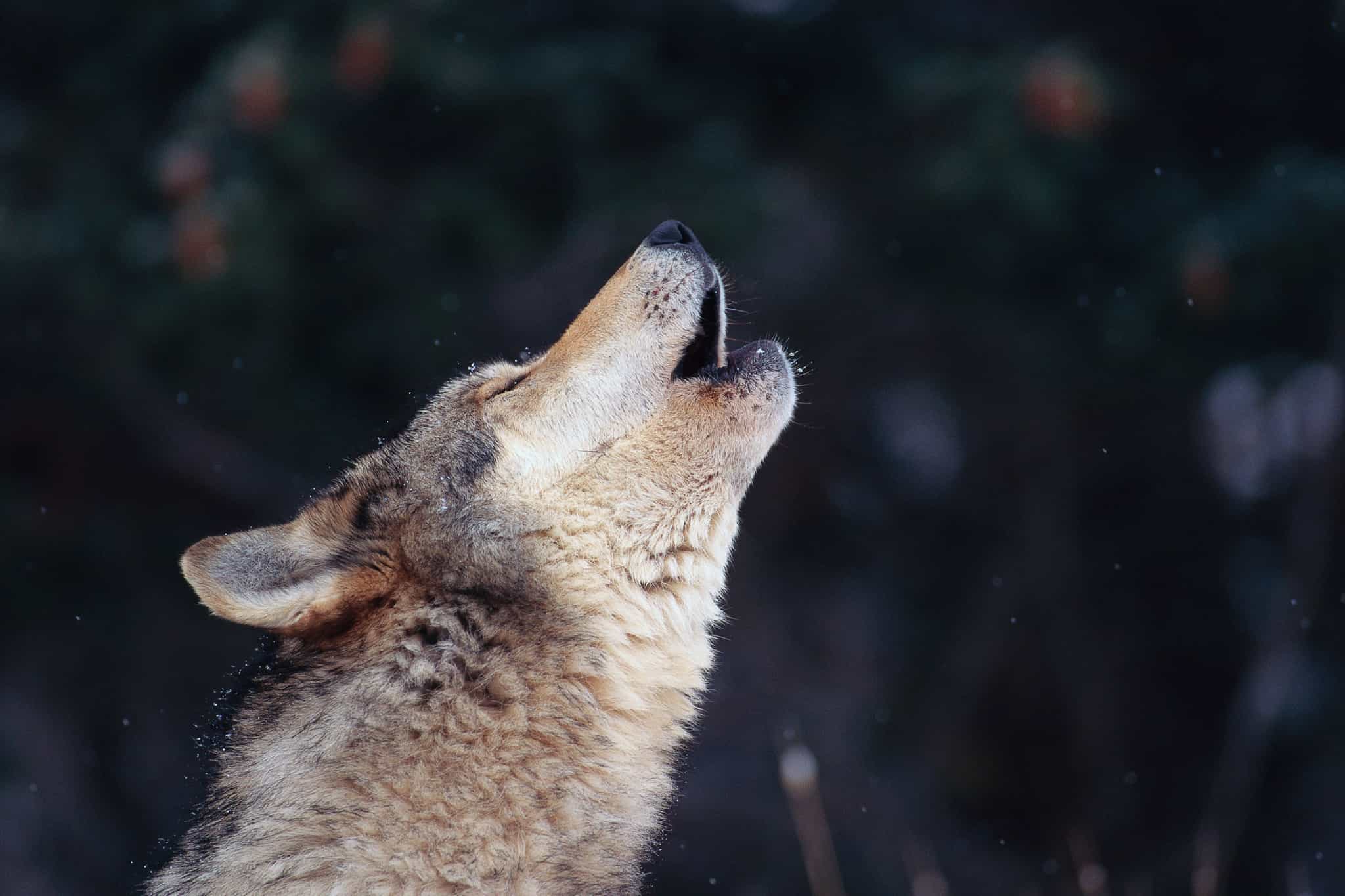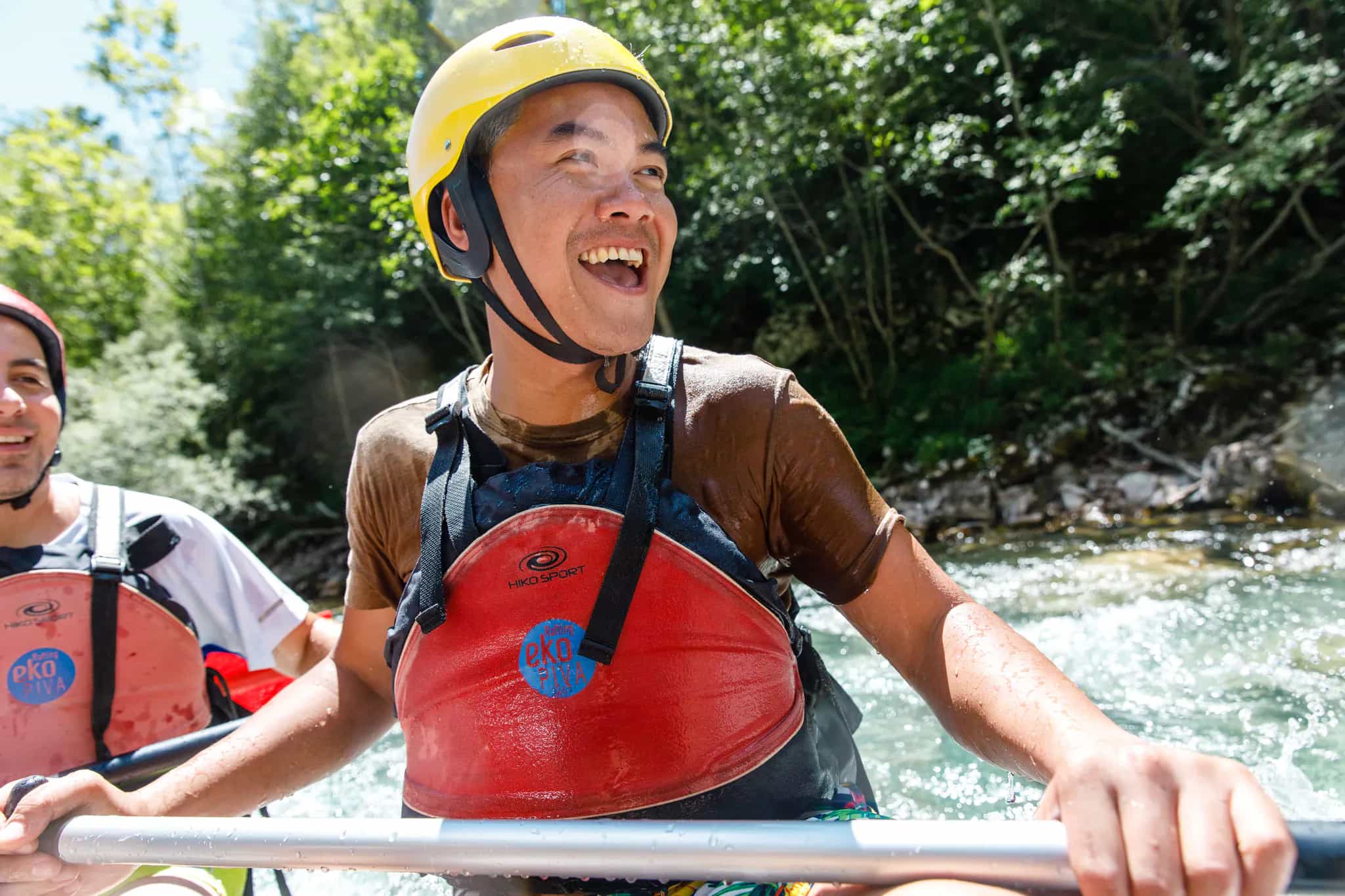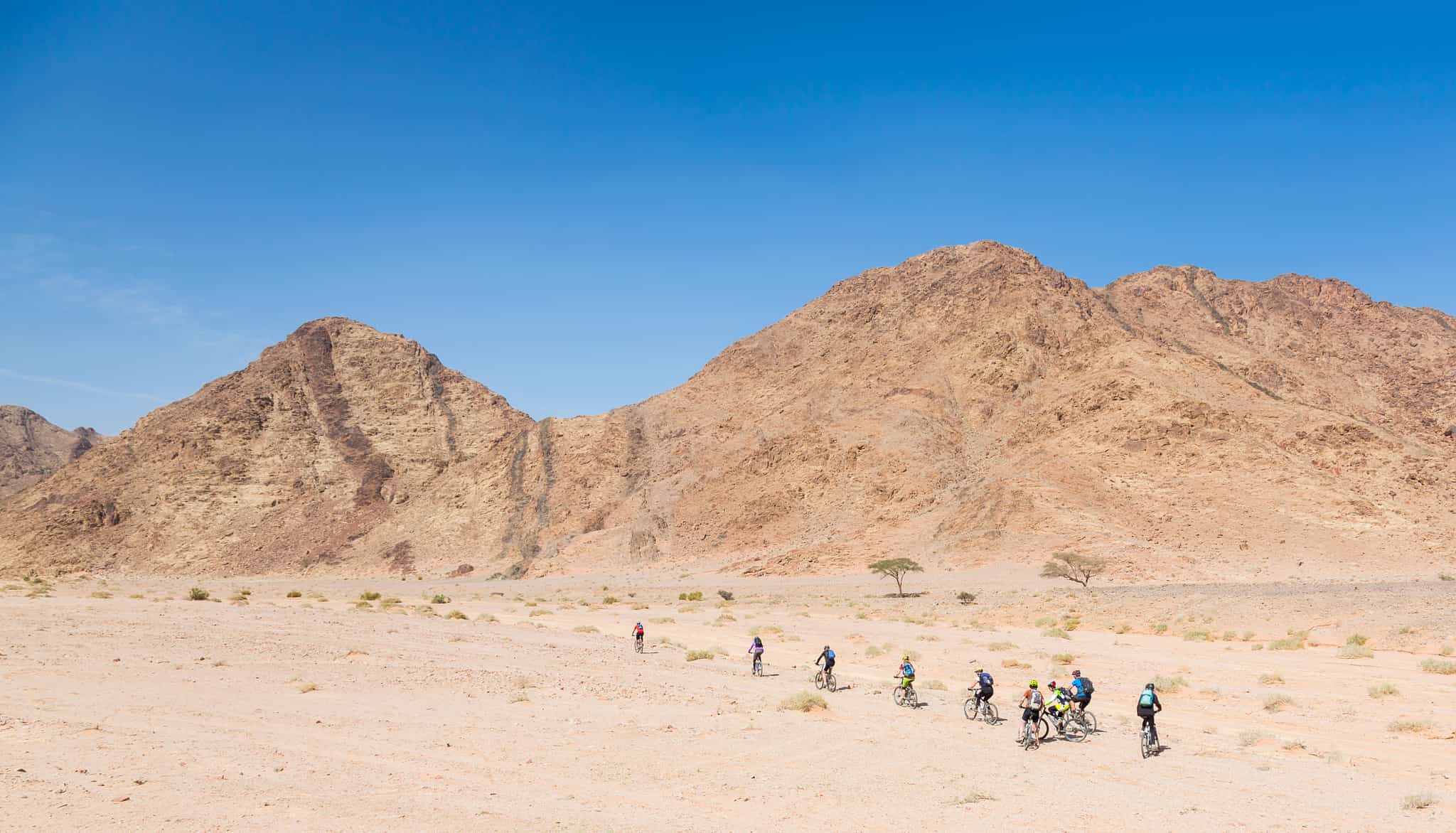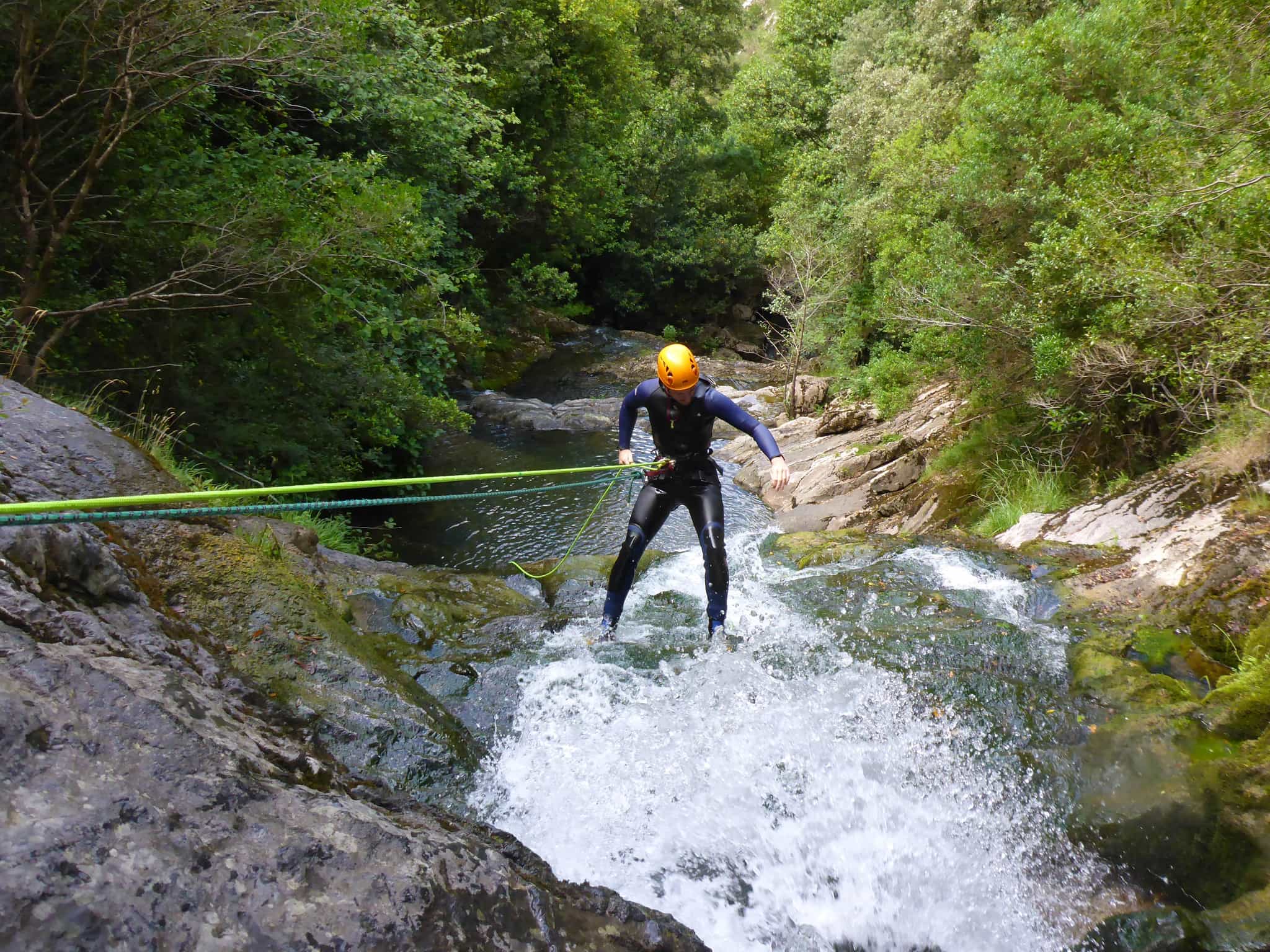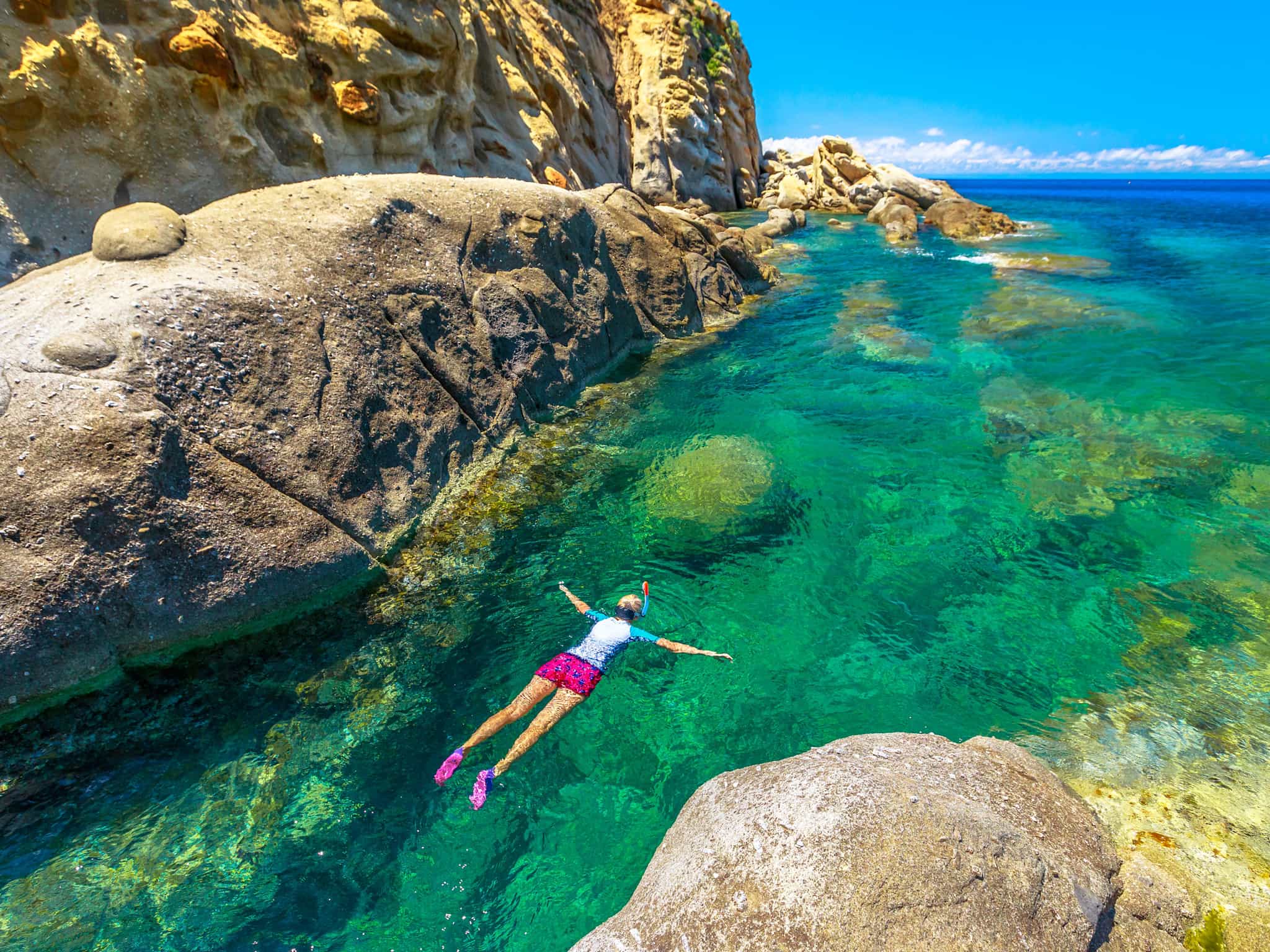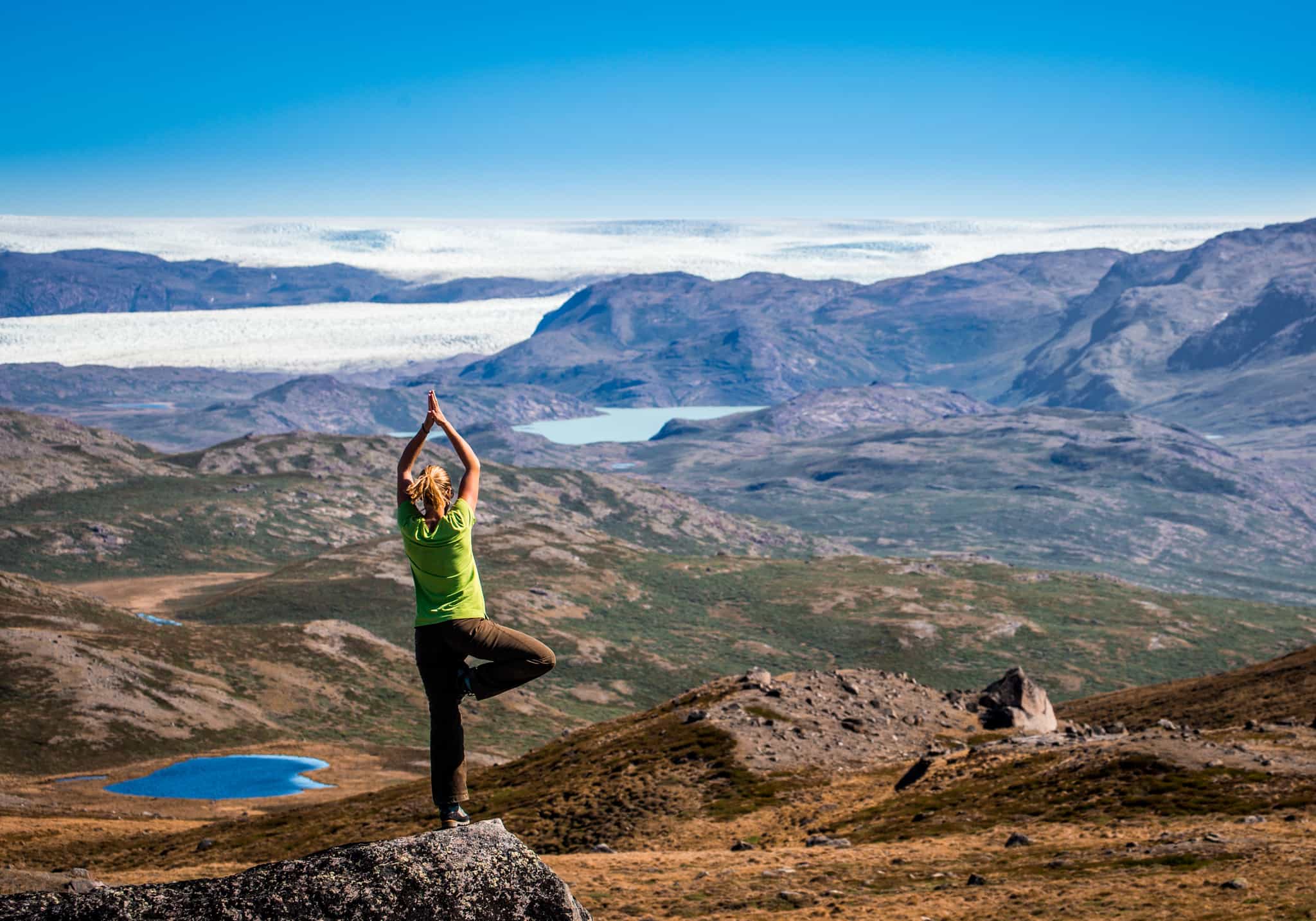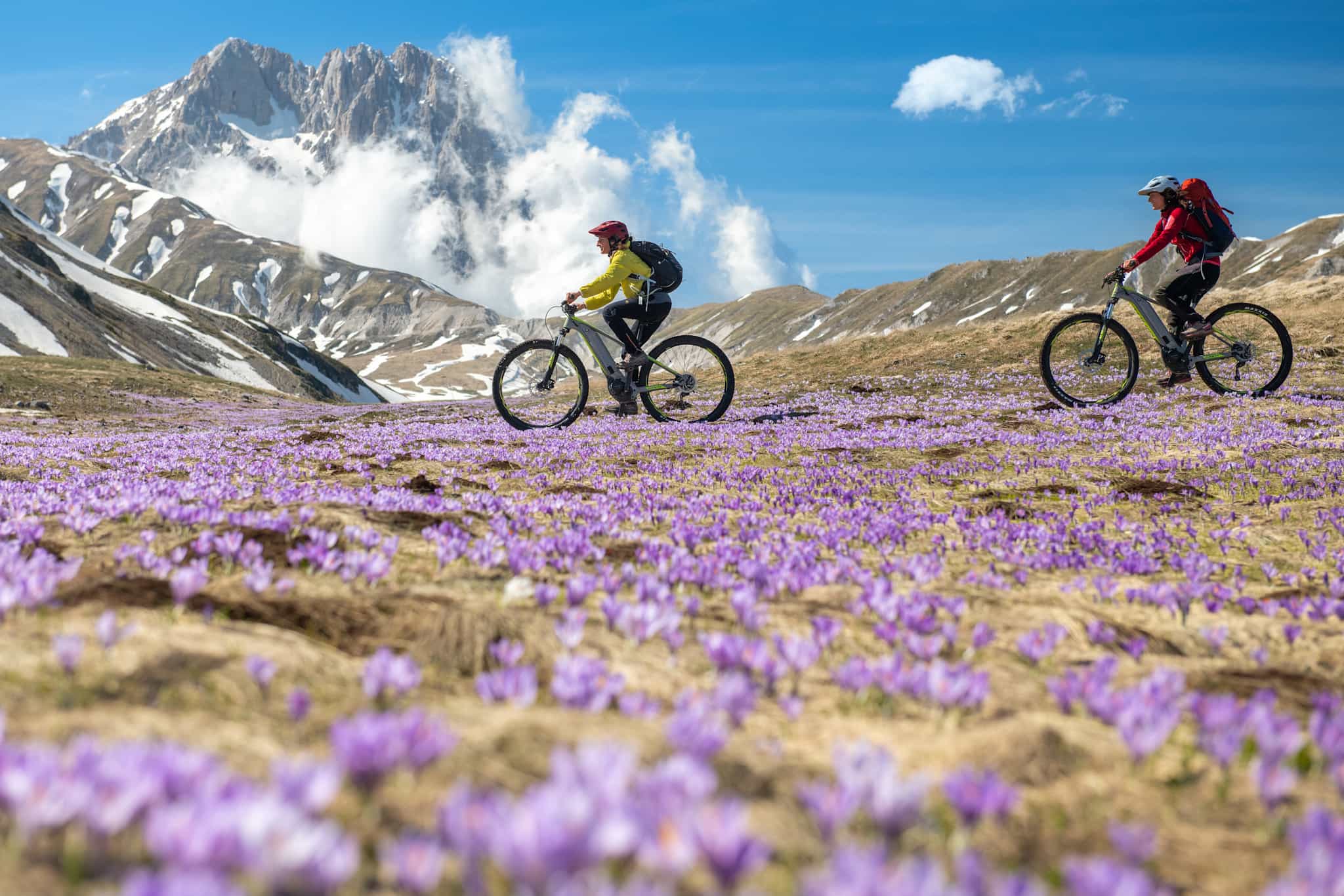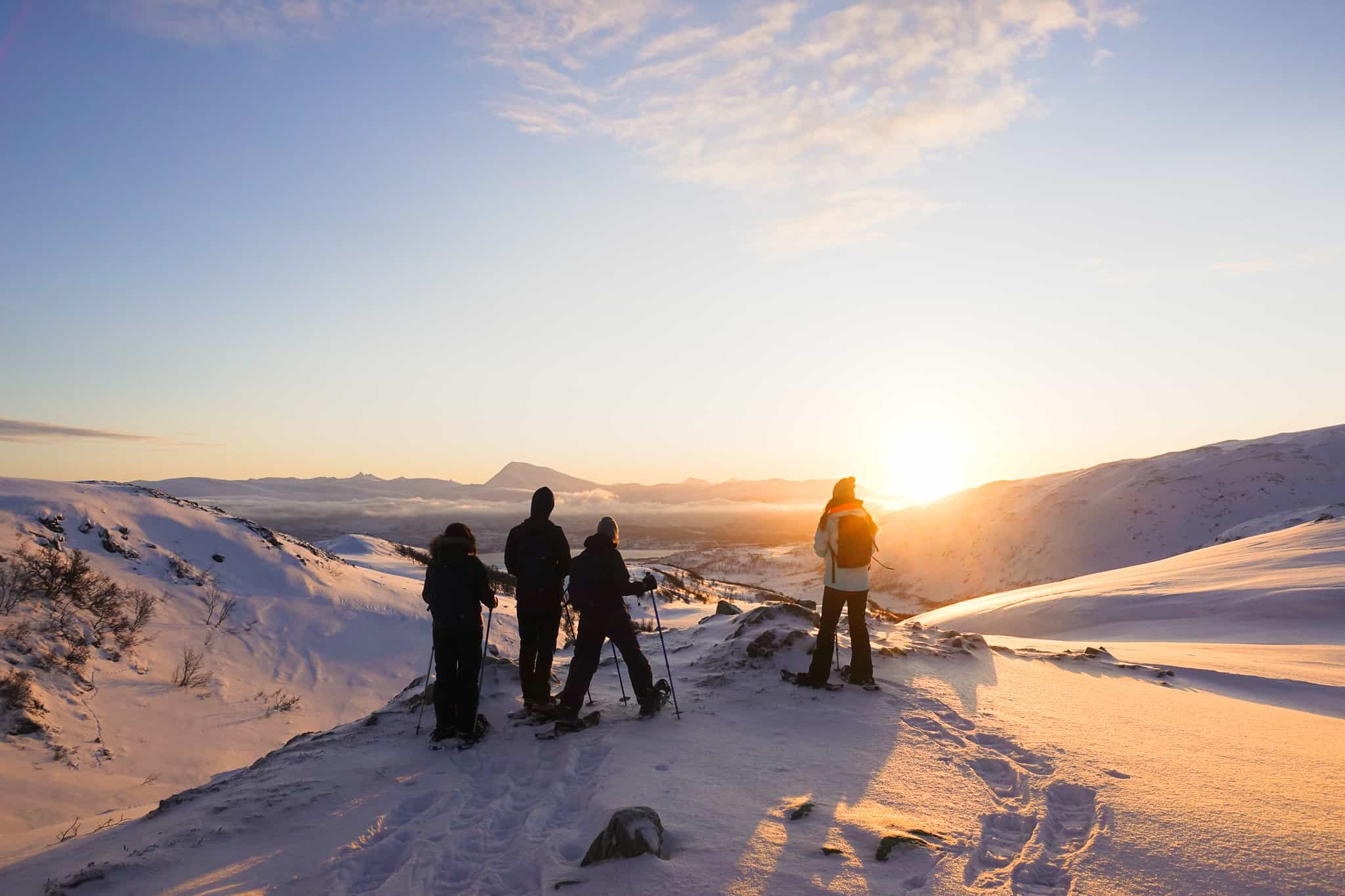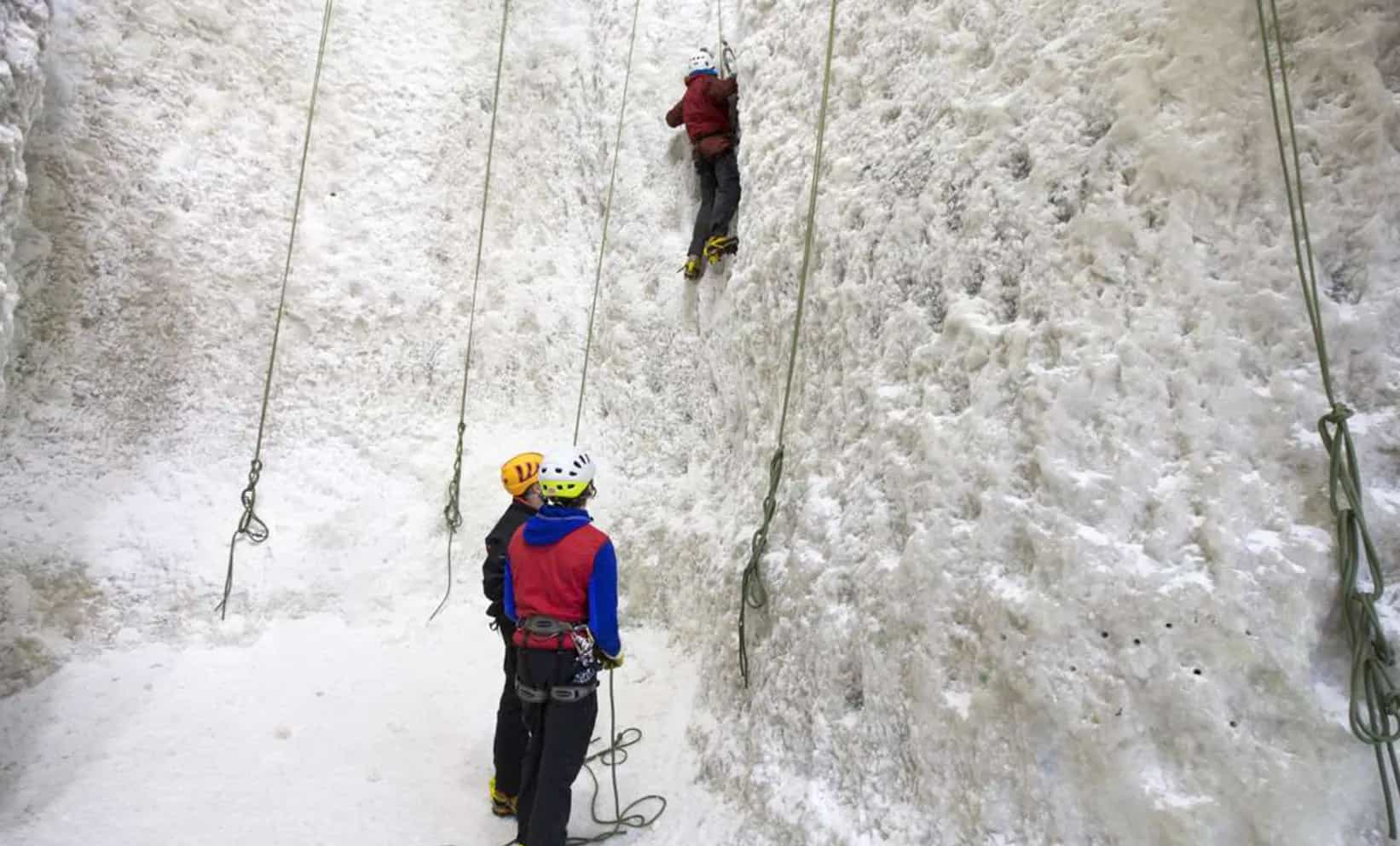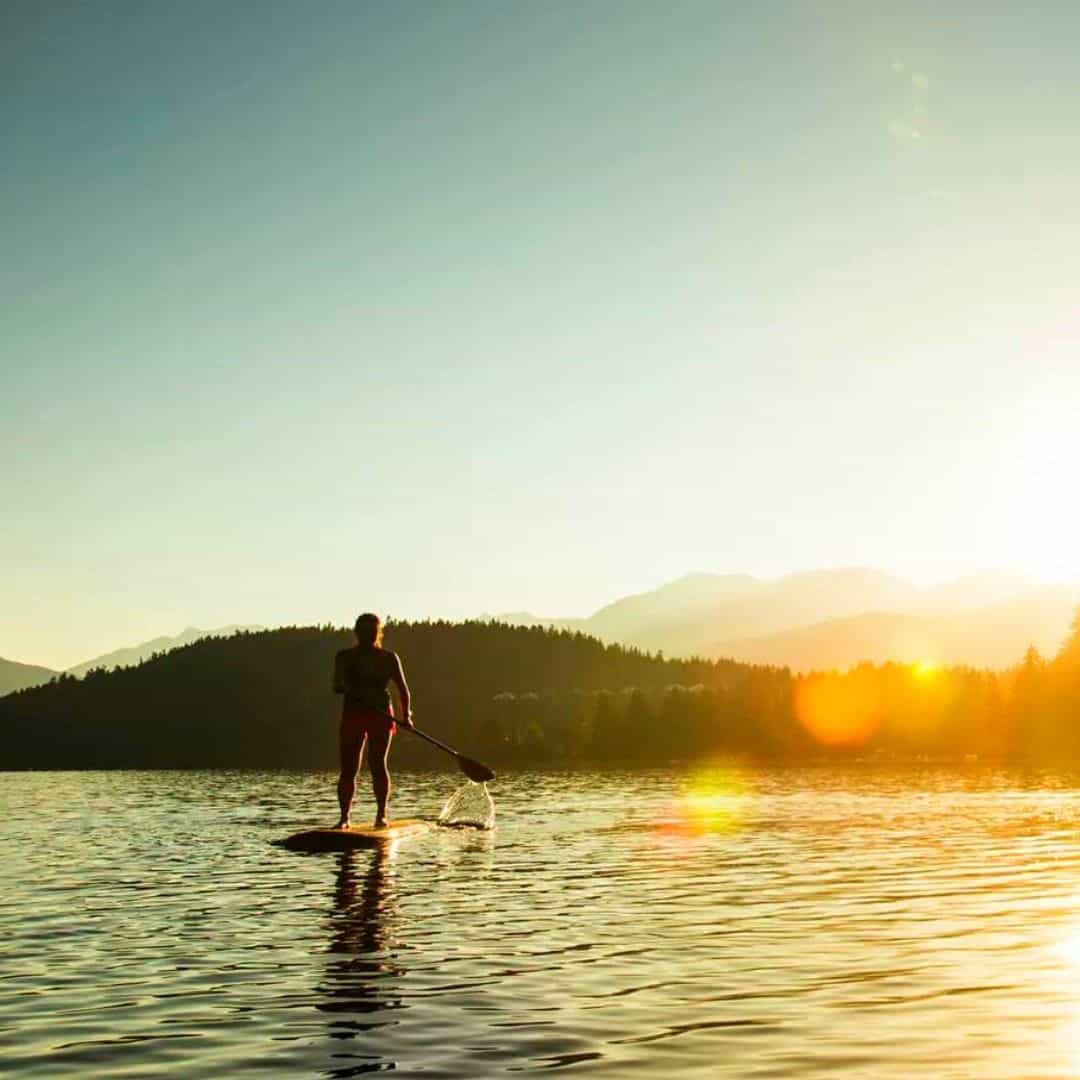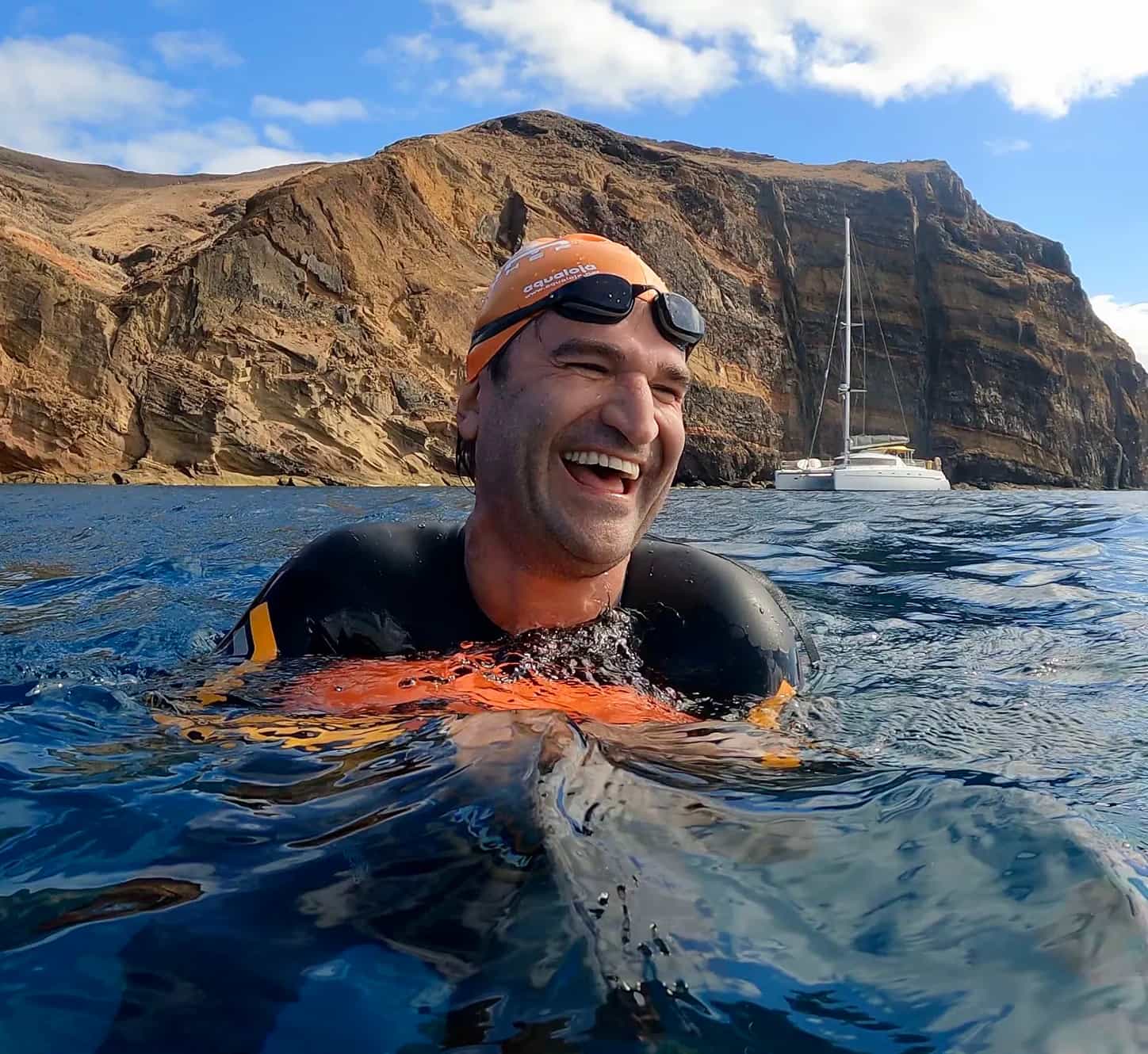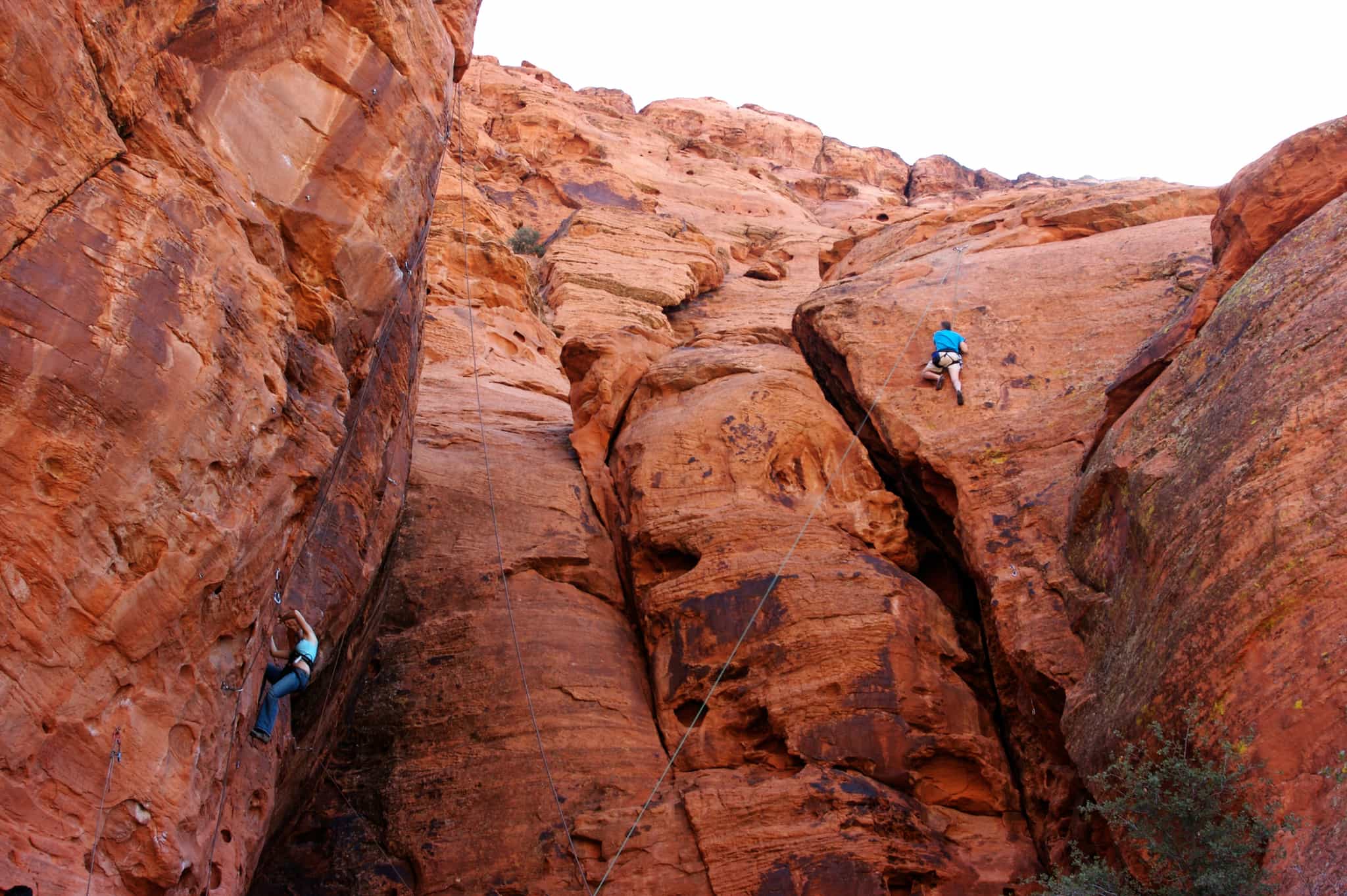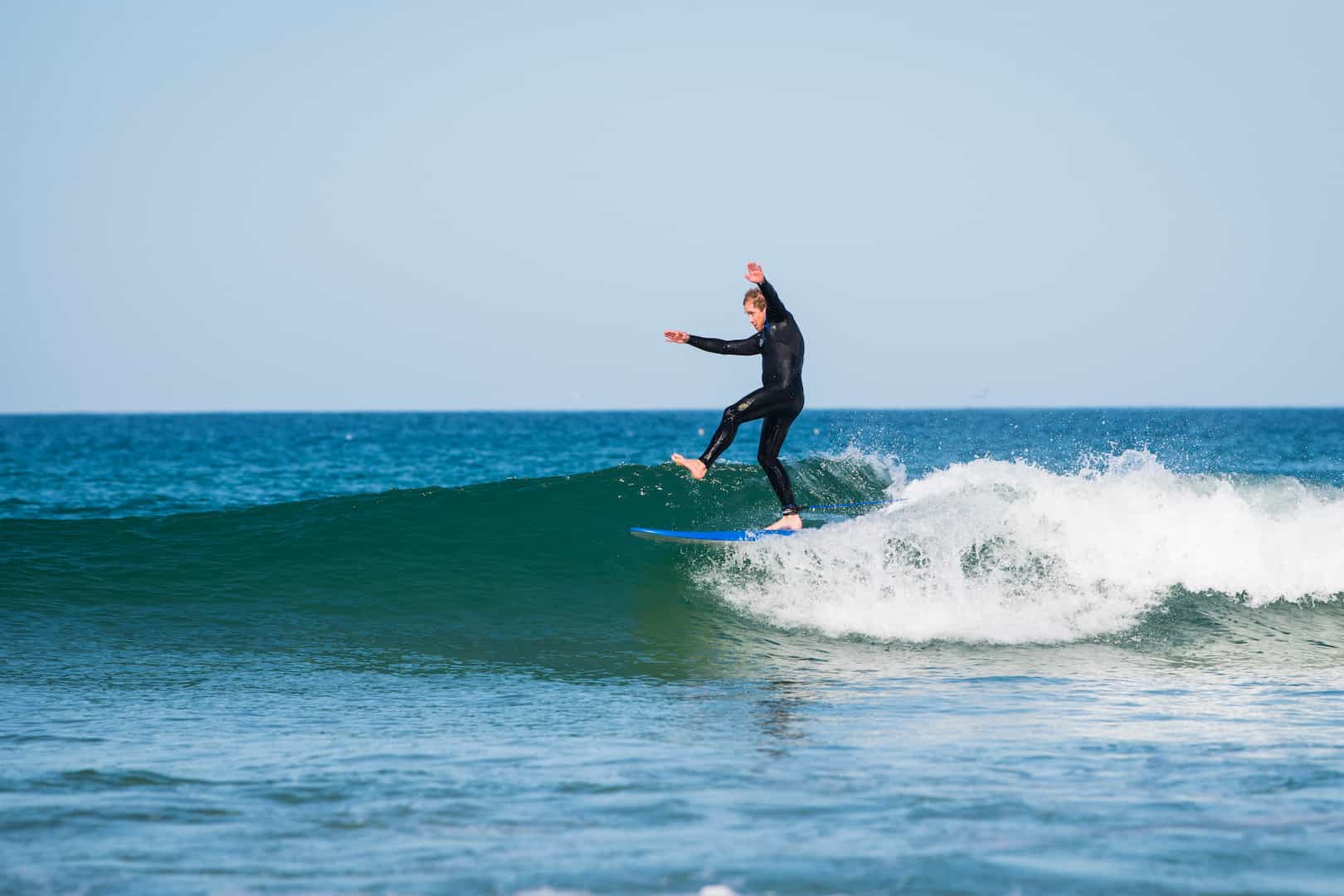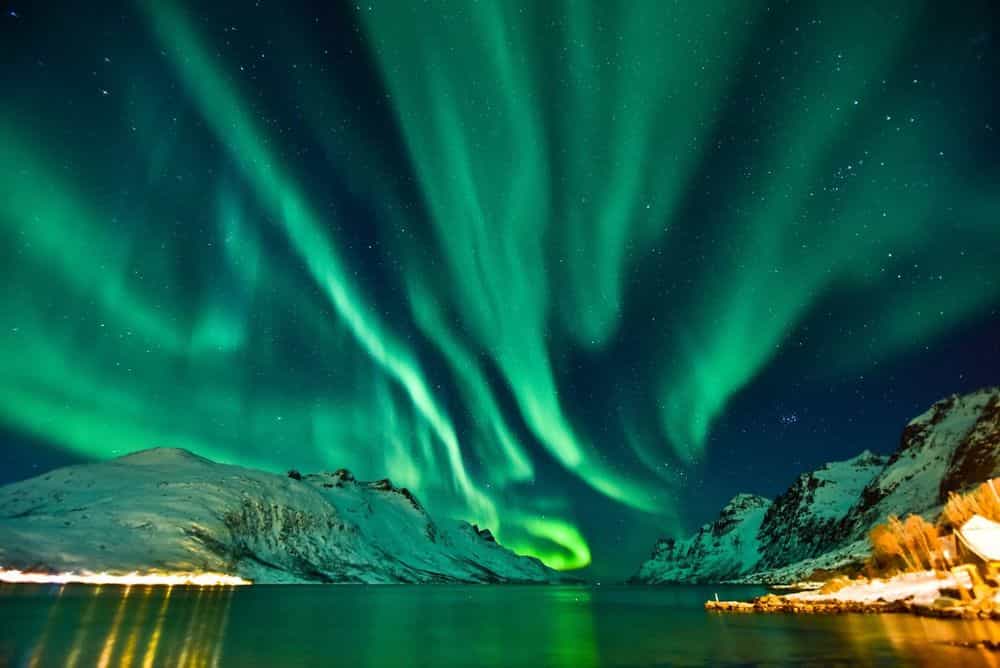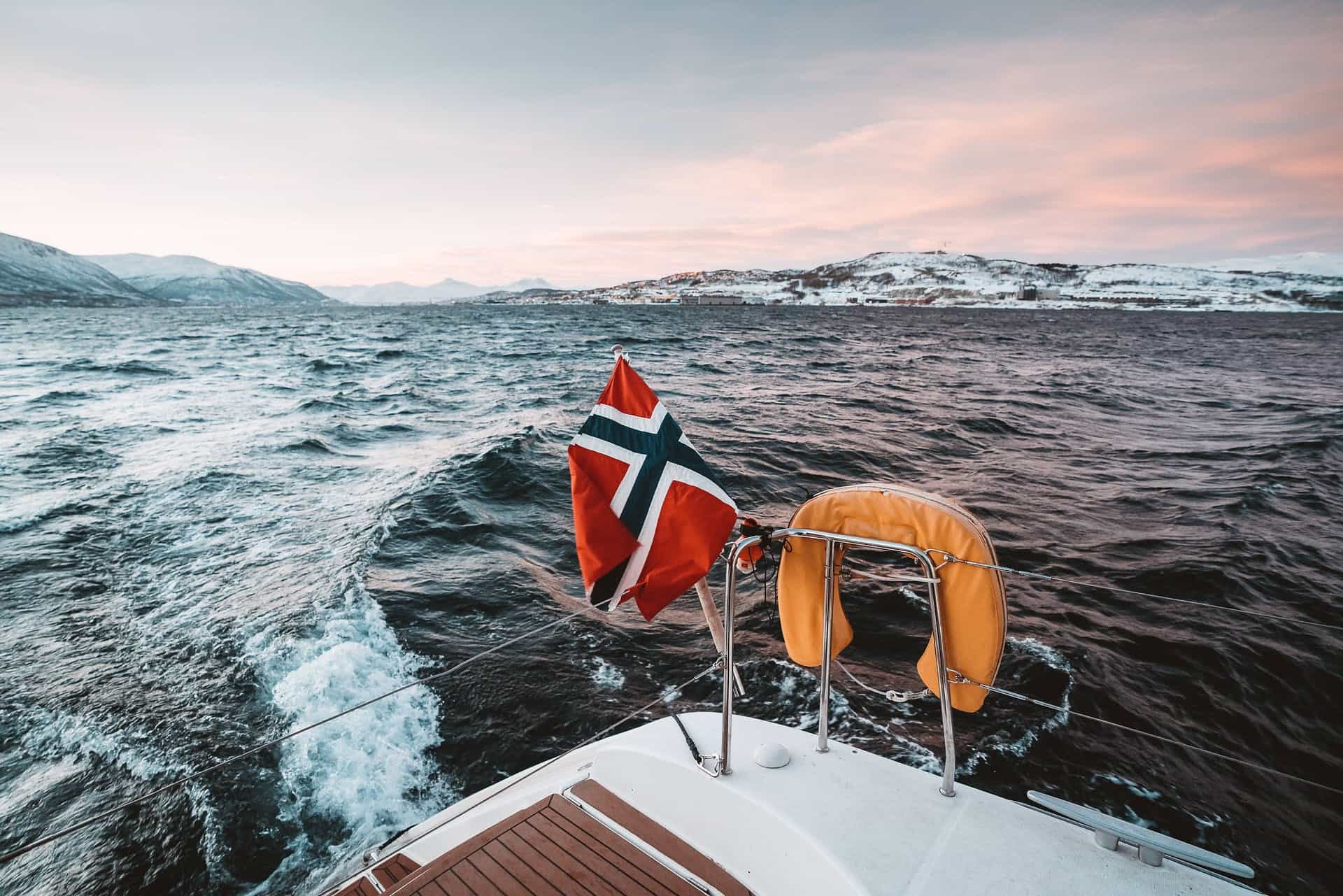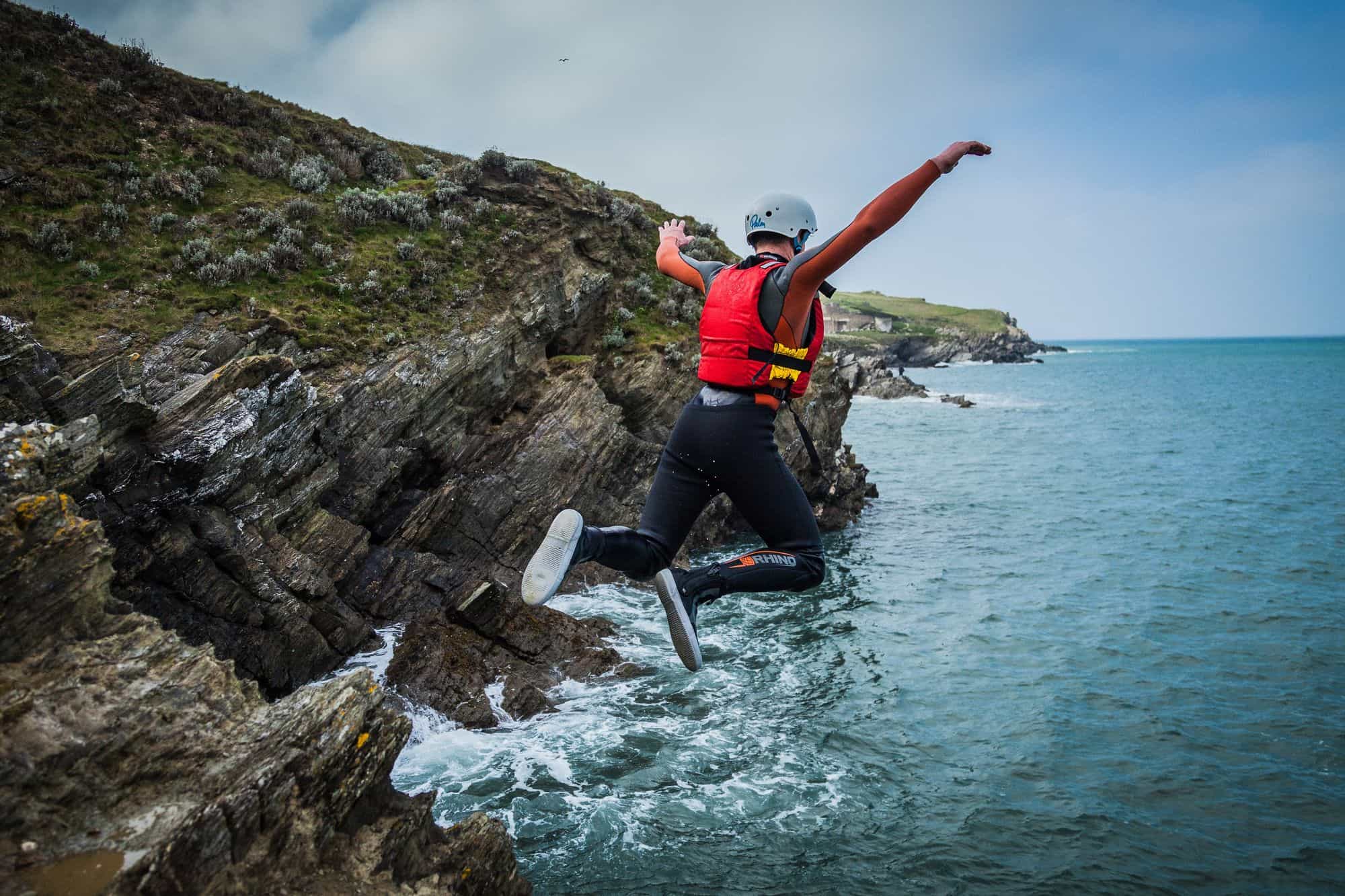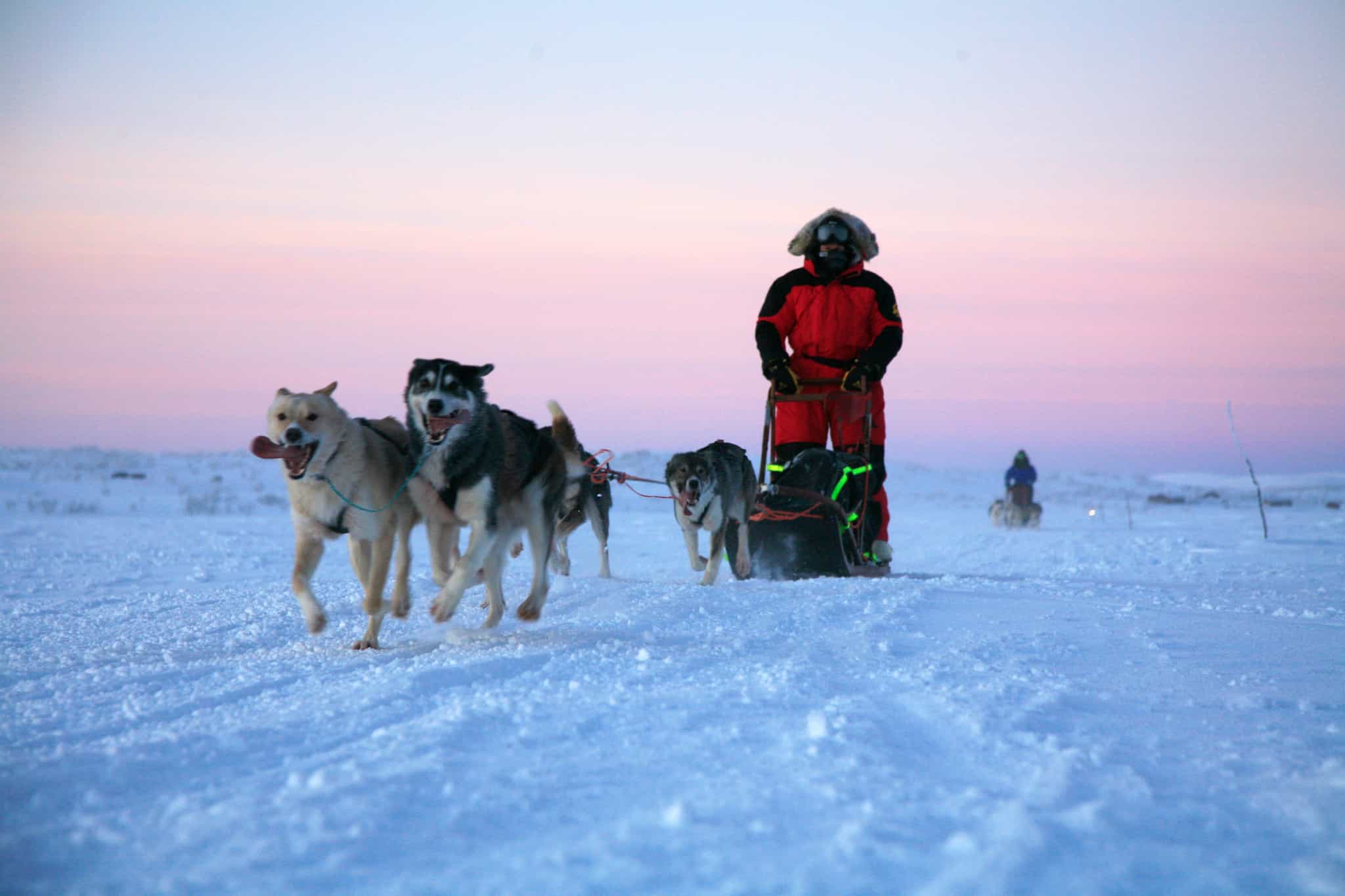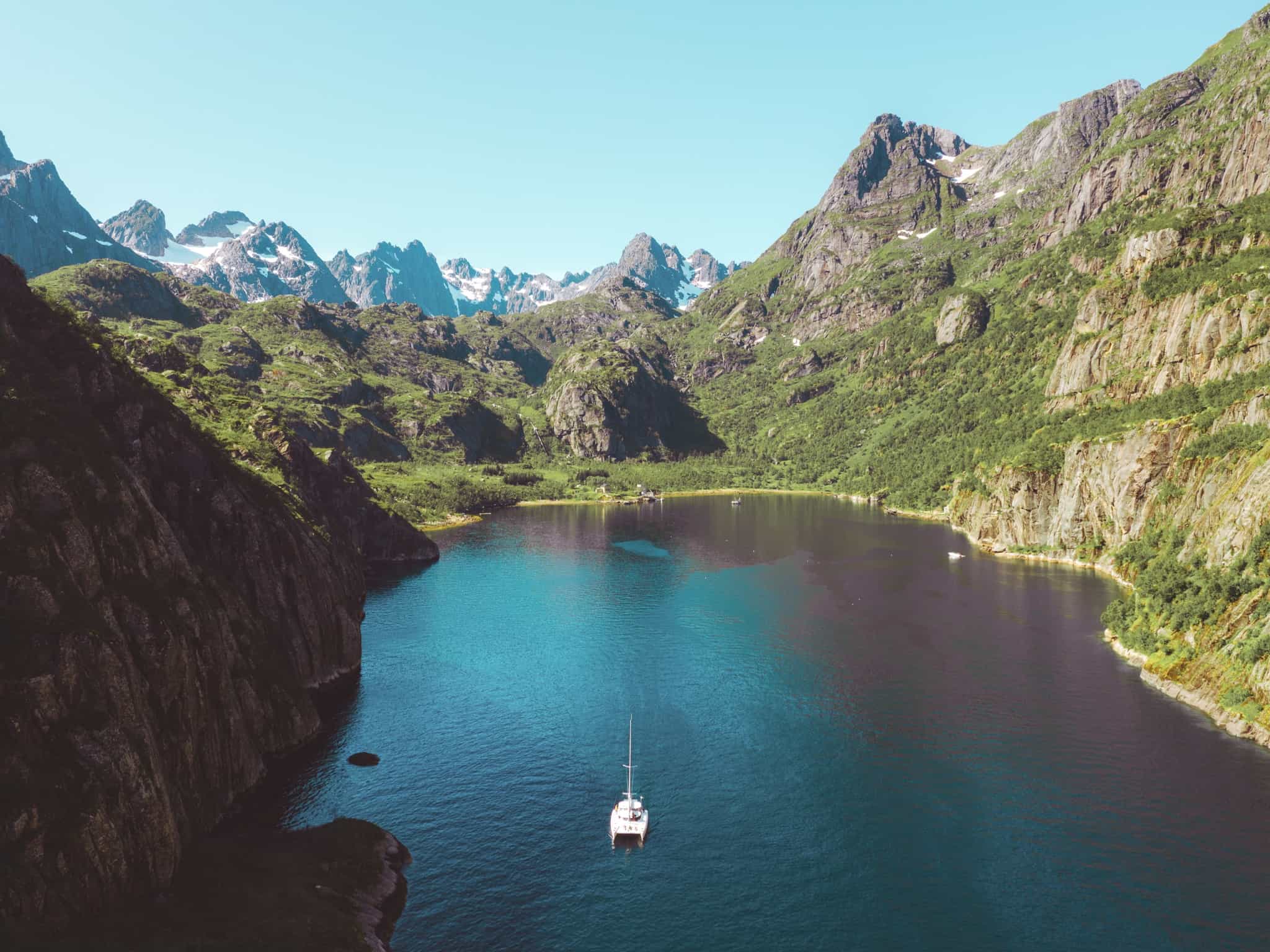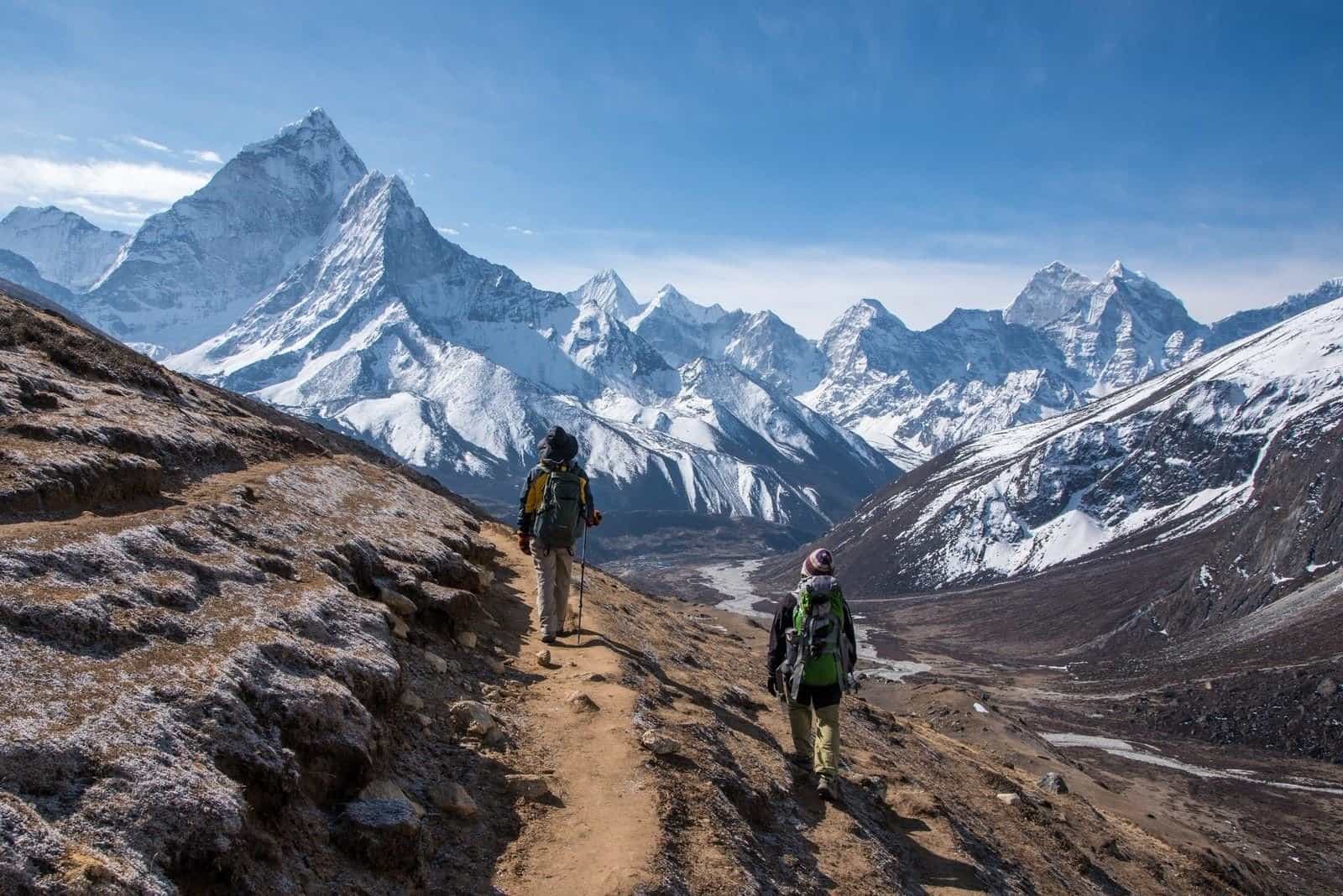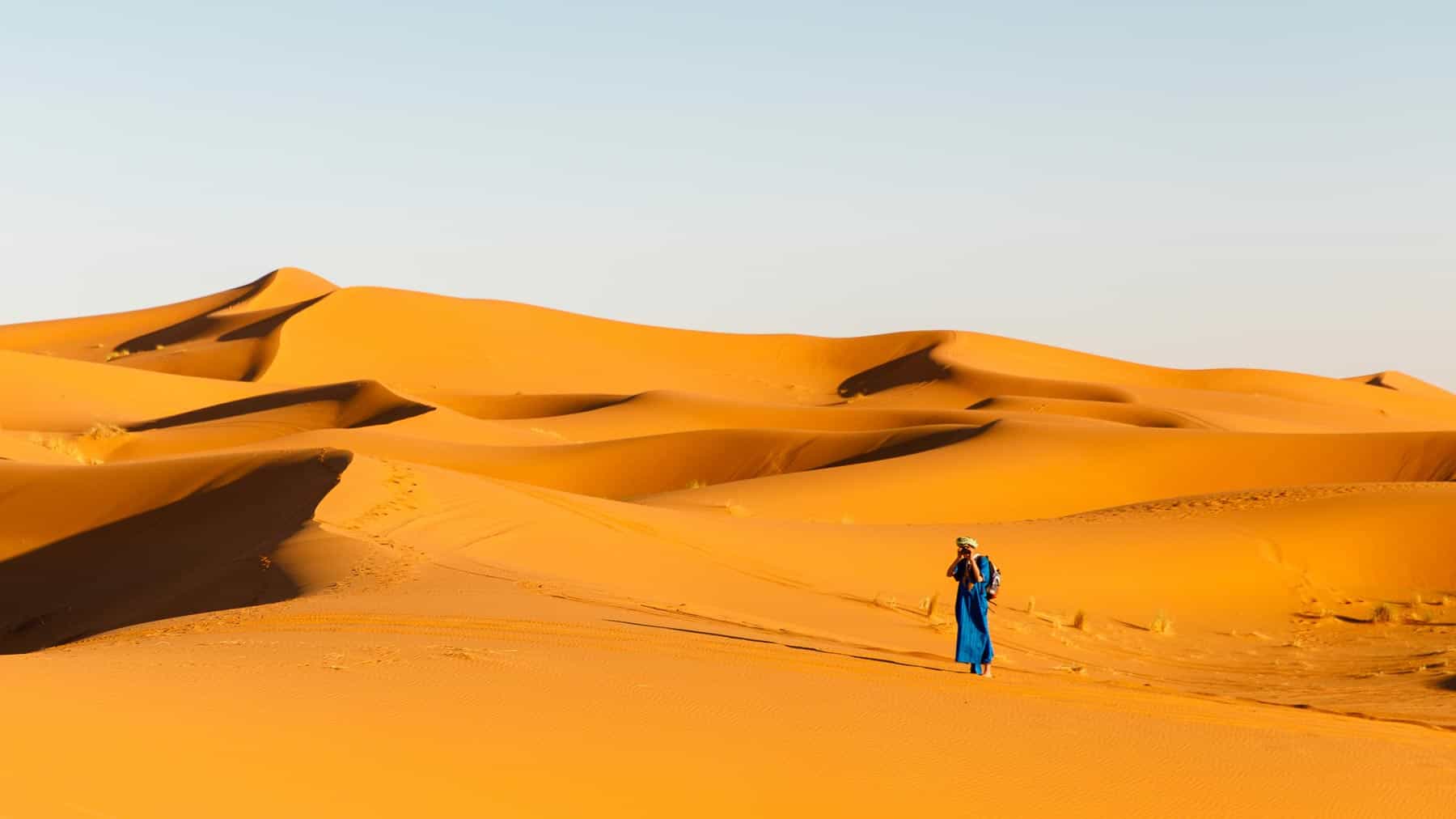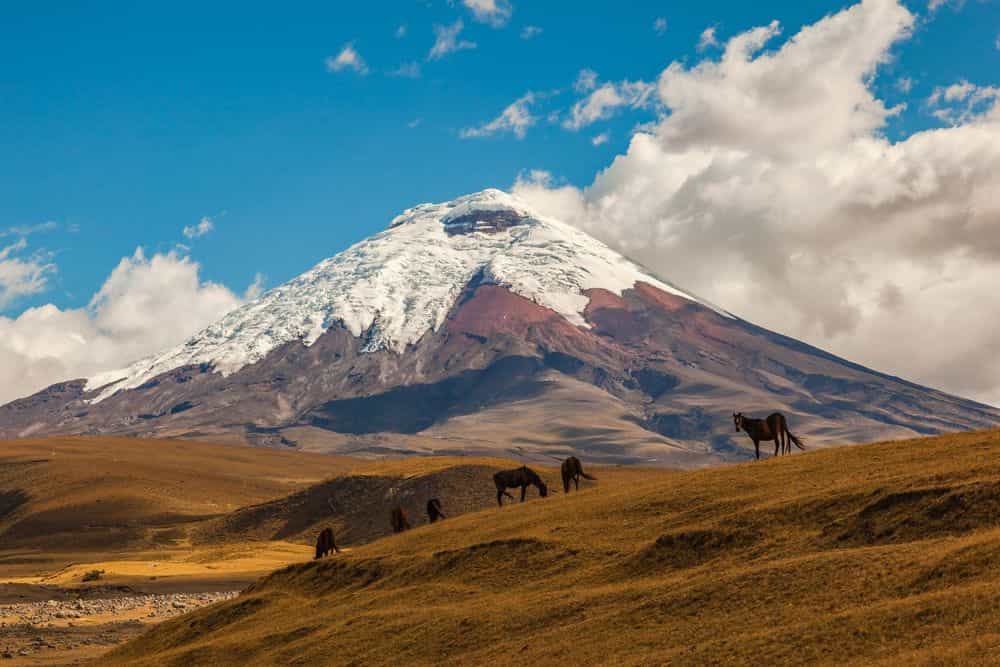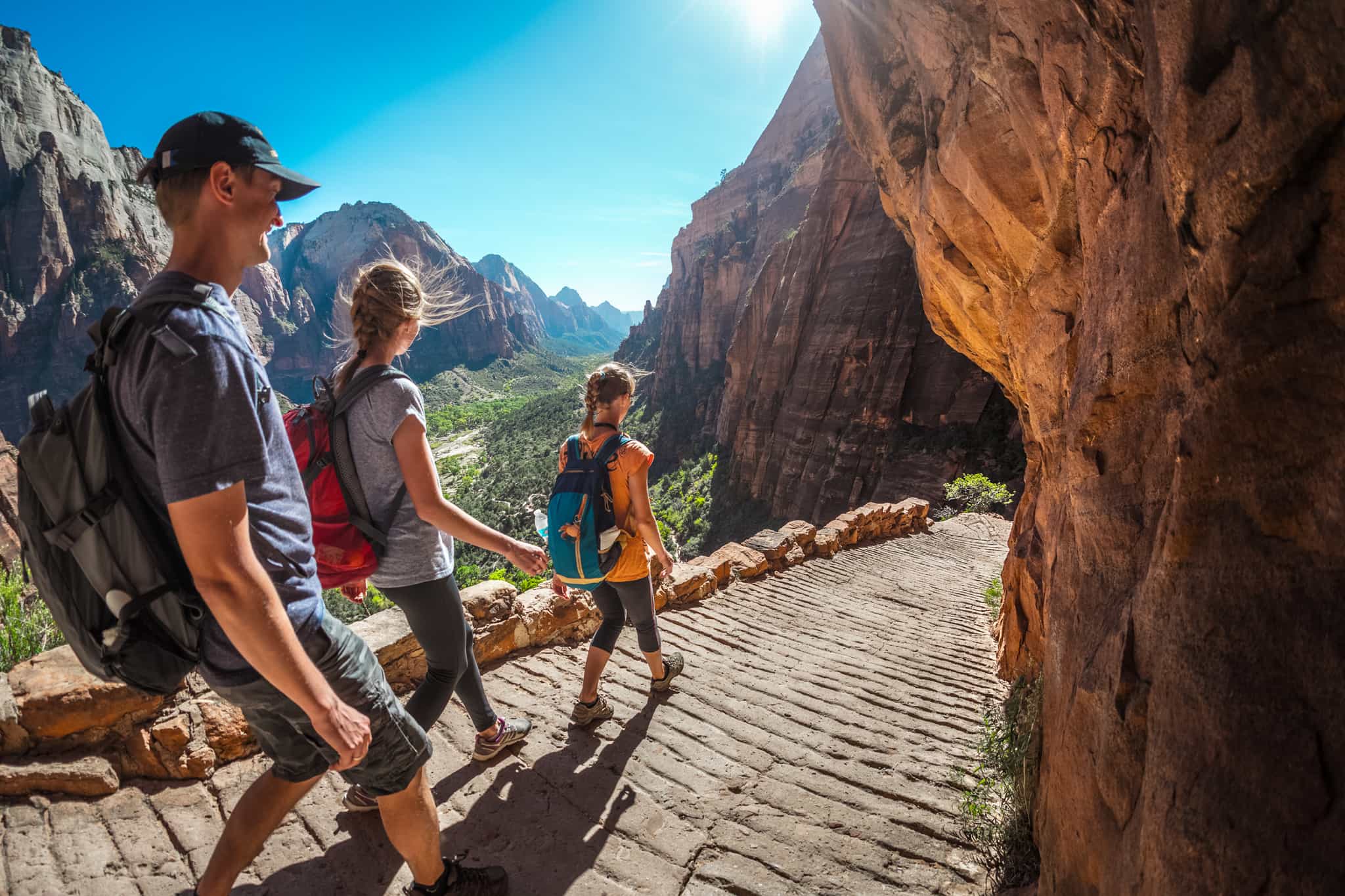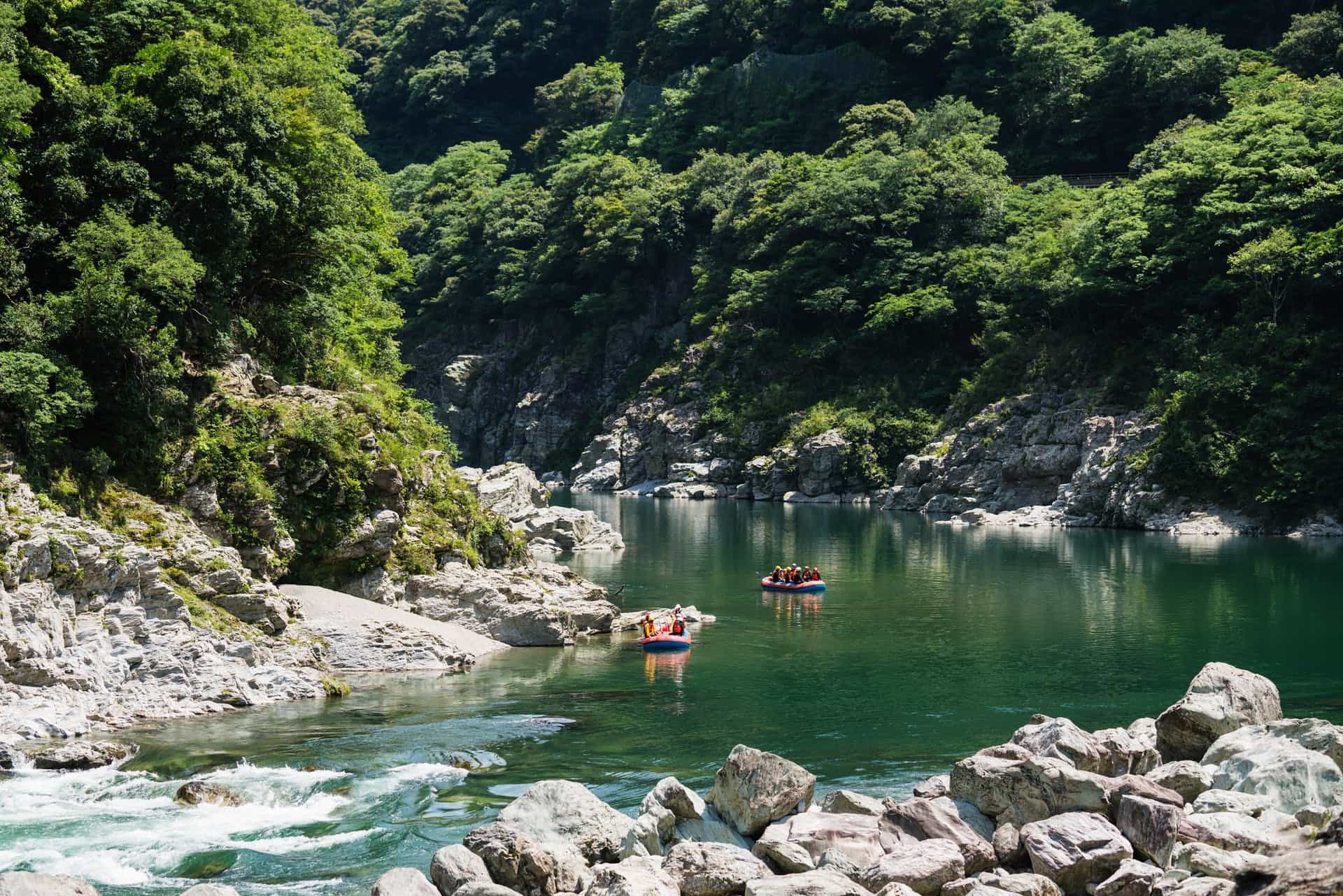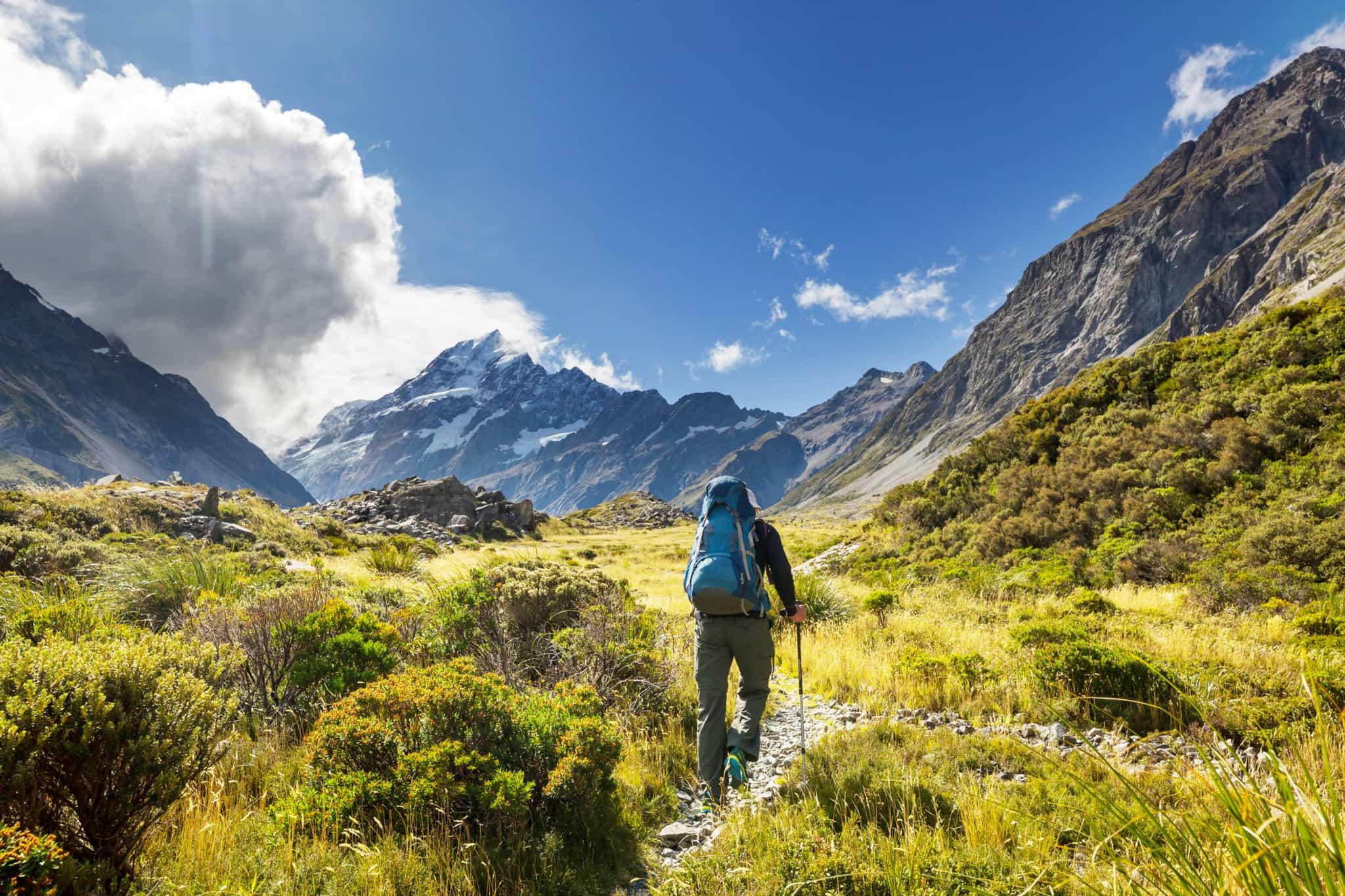
Trek the GR20 in Corsica
Tackle the northern half of Europe's toughest long-distance trek along the spine of this mountainous Mediterranean island
What's Included?
Activities & Certified Guides
All itinerary activities with expert, local, English-speaking guidesAccommodation
1 nights in a hotel, 1 night in a traditional guesthouse, 2 nights in mountain refuges & 3 nights campingMeals
All breakfasts, lunches and dinners throughout the tripTransfers
A group transfer to and from the airport and everything in betweenLuggage Transfer
Luggage transfer by vehicle on Day 4 and Day 6Small Like-minded Groups
Solo-friendly by design, join our small n’ sociable groups of up to 12 like-minded, active and outdoorsy people…
…
What's it like?









Take on a week of mesmeric trekking along the spectacular GR20 from Vizzavona to Bonifatu, hiking steep, exposed and technical sections as you go
Meander through the foothills of Monte Cinto, Corsica's tallest peak, and traverse a ridge to reach Pointe des Eboulis (2607m), the GR20's highest point
Bunk down in remote mountain refuges, brave bracing swims in natural pools and lap up never ending views of jagged peaks and the distant sea
Key Information
Day 1
First glimpses of incredible Corsica

Get your first glimpse of Corsica, the rugged jewel nestled in the Mediterranean, as you descend towards Bastia Airport – or perhaps take in the view across the water if you've opted to arrive via ferry. Your host will meet you at the airport in the early afternoon and transfer your group to Vizzavona – the official halfway point of the full GR20. The drive takes two hours and gives you an immediate impression of how stunning Corsica is, with the Mediterranean Sea on one side and the mountainous interior on the other. Ascending along winding roads to Vizzavona, check in to your traditional guesthouse accommodation nestled in the forest. Your guides will give you a run-through of the adventure ahead before you bunk down ready for the trek to kick off in the morning.
Day 2
The trek begins: Vizzavona to Petra Piana

Hiking
Wake up and soak up the excitement as trekkers fuel up on breakfast and coffee at the official midway point of the GR20 before heading off in their respective directions. You'll be tackling a variant of the first two stages of the northern section of the GR20 – very much the toughest half of the island's trekking route (which takes two weeks to complete in full, both the north and south sections continuously). Today's trek is a long and tough day, straight out of the gate. Kick things off with a steady ascent to the Brêche de Muratellu at 2100m, following the trail alongside the azure Cascade des Anglais and further up to Muratellu with stunning views of the Monte Rotondu. Trek along the ridge, via the summit of Pinzi Corbini. This is a short but challenging section which is steep and exposed in places – having an experienced guide on these parts of the GR20 is invaluable, and if the weather is bad there is an alternative lower valley option that will be taken direct to Petra Piana. A full day of trekking delivers you to the Petra Piana refuge where you can relax, grab a drink for sunset and settle in for a night under canvas by the refuge.
Day 3
Petra Piana to Camputile Plateau

Hiking
Today is easier going after a full-on start yesterday, though this is a high mountain stage with a few technical sections equipped with chains to navigate. Setting off from Petra Piana after breakfast, tackle a short uphill section up to the high ridge above the refuge. The trail weaves through a rocky, lunar landscape and continues along a mountain pass where the views become increasingly more spectacular with Corte, the island’s historic capital, in the distance. To the east there's an impressive view of the massif of Rotundu, and to the west the Mediterranean shimmers in the distance. From the peak above Lake Capitello, you'll meander downhill to Manganu refuge, situated on the edge of the Camputile Plateau. You'll be fully immersed in this legendary trek by this point, as the remote landscape shifts and reveals why Corsica is such a mystical and alluring island. Enjoy dinner and soak up the atmosphere inside the refuge with another day under your belt, before sleeping in tents here.
Day 4
Camputile Plateau to Col de Vergio

Hiking
Your third day along the GR20 north involves a good chunk of distance to get through – 16km in total, but the elevation gain and loss is lighter today, kicking things off with a gentle uphill section through beech woods and across the green turf to the beautiful Lac de Nino. At 1743m this glacier lake is in a lovely, sheltered spot surrounded by spongy peat, with networks of streams and wells, an ideal grazing ground for ponies and other animals in the summer. The high mountain air here is fresh, tinged with the scent of alder. Enjoy a morning break and relax on the banks of the lake before eating into more of the distance ahead of you. Towards the end of today's section you'll drop down at the Col St Pierre to join a flat, horseshoe-shaped trail to reach Castel di Vergio, the island’s small ski station. You'll stay in dormitories at the refuge here after dinner and sundowners; now you are halfway through the trek.
Note: You'll have access to your additional luggage this evening so you can resupply your hiking pack.
Day 5
Col de Vergio to Melarie Valley

Hiking
Set off on a trail through the Valdu Niellu forest, a long but rolling section allowing you to make rapid progress. The trail follows the Golo River up the valley towards its source, with cascading waters flanked by pine trees creating natural pools. Midway up the valley your route crosses the river, a great place to take a break on the smooth sun-baked rocks and enjoy a revitalising swim in the fresh (but cold!) mountain water. The trail soon leaves the floor of the valley and heads up to the ridge line; from here there are clear views of the villages dotted on the west coast and the outline of distant islands in the Mediterranean. Trek through yet more incredible landscapes before pausing at the refuge at Ciuttolu di I Mori at 2000m, the highest refuge in Corsica situated between two imposing mountains (the Tafanatu and Paglia Orba). After a full day of trekking you'll eventually reach U Vallone refuge, your final stop for the day. Recharge and refuel here, you still have two big hiking days to get through.
Day 6
Melarie Valley to Haut-Asco

Hiking
Today is a tough, high altitude mountain route in the highest part of the GR20, flanked by Corsica's tallest peaks. Make your way uphill progressively to the foothills of Monte Cinto, the highest summit on the island at 2706m. The climb is steep, rocky underfoot and slow going, and there can still be snowpack here during June and July. After a couple of hours you'll arrive at Bocca Crucetta, a ridge that leads to the daunting Pointe des Eboulis at 2607m – the highest point on the GR20, the view is absolutely spectacular. From here, the path plunges precipitously down to the small lake on the other side, so settle in for a steady descent downhill with scree and rocky terrain finally giving way to a river and woods as you approach the old ski station of Haut-Asco. Settle into the refuge here and grab a beer or soft drink to toast a cracker of a day on the highest section of Europe's toughest trek, before bunking down in the dormitory at the refuge. Multi-day trekking simply doesn't get better than this!
Note: You'll have access to your additional luggage this evening so you can resupply your hiking pack.
Day 7
The final stage: Haut-Asco to Bonifatu

Hiking
One last memorable stage of the GR20 awaits today: the final stretch of the northern half to reach the finish line. From Ascu-Stagnu you'll climb up to reach Bocca di Stagnu at the foot of Muvrella at 2150m. The proximity of the sea getting ever closer beckons in the final stages of GR20. At Muvrella Lake, the view over the Bay of Calvi is superb – this is undoubtedly one of the most beautiful stretches of the GR20. Lap up the views and the rising feeling of accomplishment, crossing the Spasimata footbridge and bidding farewell to the GR20 shortly before the Carozzu refuge. You have one last spectacular and demanding descent to Bonifatu along the Mare e Monti trail as your trek reaches its conclusion. Your host will transfer you on to Calvi, where your efforts are rewarded with a comfy hotel and all the creature comforts that you've left behind over the past week in the wild. Head out for dinner at a local restaurant tonight to toast the successful completion of this iconic trek.
Day 8
So long, Corsica

Driving
Your adventure comes to an end this morning on this picturesque part of the Corsican coast. Hop in the van for the two-hour ride back to Bastia Airport as your host drops you off at the airport around midday in time for any flights departing from 14:00 onwards. If you're opting to stay on longer in Corsica, the stretch of coast around Calvi has some stunning coastal spots to explore if you wish to bid farewell to your host and fellow adventurers there, or you can take the ride back to Bastia and continue your travels, perhaps moving on to the wild coastal areas north in the Cap Corse.
The Area
Logistics
Starts
Bastia Airport
17:00 on Day 1
Ends
Bastia Airport
12:00 on Day 8
Transfers
Your host will provide one group pick up on Day 1 at Bastia Airport to transfer the group up to Vizzavona – the midway point of the GR20. Please arrive before 17:00 on Day 1 in order to join this group transfer. If you are already in Corsica, you'll need to make your way to Bastia Airport in order to meet the group transfer. Bastia itself is a30-minute drive north of the airport. To get to the airport from Bastia, you can take the Line 1 train, which costs €13. A taxi between Bastia and the airport will set you back €50–€65.
On Day 8, your host will provide a group transfer back to Bastia Airport in the morning, with the drop off at approximately midday for flights departing from 14:00 onwards.
Travel options
For UK travellers, there are flights to Bastia from London Gatwick and for European travellers there are many direct options from major and minor hubs including Paris, Rome, Frankfurt, Munich and Stockholm amongst others. North American travellers will generally transit via one of these hubs.
For European travellers who are keen to avoid flying, Corsica is reachable via a combination of train and ferry via a few routes. An example route would be taking the Eurostar from London St Pancras to Paris and then through France on the TGV high speed rail to either Nice, Toulon or Marseille, where ferry services depart to Bastia. You can also catch the ferry to Bastia from Italy via any of the ports at Genoa, Savona, Livorno, Golfo Aranci, and Portoferraio on Elba Island.
Day 1
Breakfast
Lunch
Dinner
Day 2 – Day 3
Breakfast
Lunch
Dinner
Day 4
Breakfast
Lunch
Dinner
Day 5
Breakfast
Lunch
Dinner
Day 6
Breakfast
Lunch
Dinner
Day 7
Breakfast
Lunch
Dinner
Day 8
Breakfast
Lunch
Dinner
What is the food like?

You'll be eating breakfast and dinner at the various refuges that you stay at along the trail. The menus differ from day to day and from refuge to refuge, but expect to see various pasta dishes, sausages with lentils, charcuterie plates, Corsican soups, couscous salads, chickpea stew, plus various cakes and cheeses for dessert. A continental breakfast of breads, jams, coffee and tea is included. Lunches will be collected from the refuge and carried with you to eat out on the trail, with pasta salads, rice salads, tabbouleh, cold meats, cheese and a dessert to keep you fuelled. It's important to bring along a lunchbox with you to carry your lunch in. Most refuges on the GR20 also have small shops where you can buy treats and snacks if you'd like any extra sustenance on top of the meals that are included. The refuges also sell drinks such as local red wine (€6-8 per glass), cold beer (€5-8) and soft drinks (€3). Vegetarians will be fine on the GR20; however, those who are vegan or gluten-free will have a difficult time on the trail given the remoteness of the refuges and the lack of vegan food options available. Please request any special dietary requirements on your passenger information form.
What is the accommodation like?

Vizzavona
You'll spend your first night of the trip in Vizzavona – the official halfway point of the GR20 – at the Monte d'Oro; a splendid, traditional hotel and guesthouse set in forest just off the GR20 route. You'll be staying in small dorm rooms of up to four people, with a private shower and toilet in each room. The restaurant and bar here are popular for trekkers along the GR20, so you can soak up the atmosphere of the route from the very beginning.

Along the GR20
The mountain refuges along the GR20 in Corsica are a staple of any trek along the route, sheltering and feeding trekkers for decades with a classic mountain hut atmosphere. You'll spend two nights in dormitories inside the refuges and three nights camping outside the refuges (with use of the facilities). The refuges are managed by the Parc Naturel Régional de Corse and while each one differs slightly, they are generally simple stone or wooden buildings with dormitory-style sleeping arrangements, communal eating areas, and basic kitchen facilities. Mattresses are provided for the nights you're staying inside the refuges themselves, while twin-share expedition tents and mattresses are provided for the three nights of camping. You’ll need to bring your own 3-season sleeping bag and travel pillow.
Dorm sizes are large, with between 26-32 beds in the refuges on the northern half of the GR20. The amenities vary – some refuges have hot showers, flushing toilets and electric charging points, while others only have cold showers and composting toilets. Electricity is limited and charging devices incurs a charge where it is available, so bring along a portable battery pack or solar charger. A small grocery shop is usually available on-site for snacks and treats. You'll stay at the following refuges:
Petra Piana (camping)
Manganu (camping)
Castel di Vergio (dormitory)
U Vallone (camping)
Haut-Asco (dormitory)
It is important to tailor your expectations of the mountain refuges. They are in very remote locations, many not accessible by road, and as such they are very rustic. For many trekkers on the GR20, this is all part of the charm and the experience of one of Europe's wildest treks; however, if you are looking for a trek with modern facilities at the end of each day, the GR20 may not be right for you.

Calvi
Your final night of the trip is spent at a hotel in Calvi on the west coast of Corsica, offering you some home comforts after a week in mountain refuges on the wild GR20. The hotel is a short walk from the seafront and has a shaded terrace overlooking gardens. You'll stay in twin-share rooms with an ensuite bathroom. Note that depending on availability, you may stay at a different hotel of the same standard in Calvi.
Upgrades
Due to the nature of this trip staying in remote refuges throughout the trek, an optional private room upgrade is not possible on this adventure.
This trip has been rated as Tough
The GR20 is becoming more and more popular, but it remains the most difficult trek in Europe. The northern half, which you'll be tackling on this trip, is the tougher half of the trail compared to the southern half. Days are long, with up to eight hours of hard trekking each day, across six consecutive days. You can expect uneven terrain, including loose scree and rock sections plus some exposed areas and sections which have fixed chains to help with hand holds. This trek is for hikers in very good physical shape who already have experience of mountain trekking over several days, and who possess the determination and sense of adventure to push on when the going gets tough. There is also some scrambling involved, so a good head for heights is needed at certain points. You should not underestimate the nature of this trek - the conditions and terrain are often referred to as more difficult than on treks such as the Tour du Mont Blanc, Everest Base Camp, Kilimanjaro or the Inca Trail. Given the tough nature of the trip, having a read of our guide to preparing for a mountain climbing adventure in advance will help you prepare properly.
An additional challenge is the sense of remoteness and the basic nature of the refuges - of course, this is all part of the adventure in this wild spot. It's hard to find anywhere in the Mediterranean this rugged, remote and spectacular, but this comes at a cost of creature comforts whilst on the route. The camaraderie and sense of unity that trekkers feel on the GR20 is in part created by this sense of all being in it together, despite the tough conditions.
What if i need to skip an activity?
This is a linear, hut-to-hut trek, so skipping a stage is not possible. If you are unable to continue with the trek your host can arrange an evacuation from certain points with access along the route. Exiting the route part way through may require several hours of walking on steep trails. Given the committing nature of the GR20 route, it is important to arrive on the trip physically prepared for the challenge of six full days of hiking in the mountains.
What will I need to carry?
You'll need to carry your own pack throughout the trek, with all* your clothes, waterproofs, toiletries, personal items, lunch each day, snacks and water, plus your sleeping bag and a travel pillow. It's essential that you have a comfortable, proper hiking backpack with waist support straps, ideally one that you have broken in – we suggest getting some hours under your belt using the pack on warm-up hikes before the trip. Your pack should be 35-50 litres in size, try to pack light where you sensibly can.
*Please note that there is a luggage transfer included in the trip price, which will deliver your spare luggage to you at the refuges on Day 4 and Day 6 only. Road access on the route is limited to these two locations. This means you can re-supply with extra clothes and personal items on the evenings of Day 4 and Day 6 to keep you going for the remainder of the trip.
The GR20 experiences varying weather conditions between June and September. Here's what you can generally expect:
June: daytime highs range from 18°C to 25°C (64°F to 77°F) in the lower altitudes, cooler at higher elevations. Expect generally pleasant weather with dry conditions, with streams full from snowmelt and flowers in bloom.
July and August: temperatures increase from warm to hot, with highs between 25°C and 30°C (77°F to 86°F) in lower areas. Again the temperatures are cooler at high altitudes, however the sun can feel intense at peak summer. Days are dry and sunny, though sudden thunderstorms can occur especially in the afternoons. Your guide will keep constant eye on the forecast to plan ahead, including starting hikes early in the day to avoid the heat and potential storms.
September: things become more mild, with highs of 20°C to 25°C (68°F to 77°F) at lower elevations and nights are cooler. Weather conditions are clear and stable for most of the month, though rain and storms become more likely as the month progresses, so we don't run trips into late September for this reason.
Nighttime temperatures can be cold even in the height of summer, so bringing along a good 3-season sleeping bag is essential (with comfort rating of 0 degrees Celsius).
We’re still waiting to collect any reviews from other travellers on this trip. However, all our hosts go through an extensive vetting process to ensure that your adventure is awesome.
Itinerary Activities
- 6 full days of guided trekking along challenging, remote terrain on the GR20
Guides
- Expert, English-speaking local trekking guides with years of experience on the GR20 and IML certification
Accommodation
- 1 night in a traditional guesthouse in Vizzavona before your trek begins
- 3 nights camping at campgrounds outside mountain refuges along the GR20 route
- 2 nights in dormitories inside mountain refuges along the GR20 route
- 1 night at a locally owned hotel in Calvi
Meals
All your meals are provided for the duration of the trip. This includes:
- 7 continental breakfasts, with tea and coffee
- 7 picnic lunches in some incredible spots along the GR20
- 7 evening meals at the mountain refuges, offering local specialities
Transfers
- Group arrival transfer from Bastia Airport on Day 1
- Group departure transfer to Bastia Airport on Day 8
- Transfer from Bonifatu to Calvi at the end of the trek
Luggage Transfer
- You'll have access to your additional luggage on the evenings of Day 4 and Day 6
Our trips are hassle-free by design. We include all the activities and equipment, as well as many of the meals, so you can simply rock up with your rucksack and share the adventure with your new pals.
Travel to and from the trip
Our trips do not include flights, trains or other travel to the start point and back from the end point.
Tips
Tips are not included in the trip cost; these are entirely at your discretion. If you would like to tip, the amount should be reflective of your perception of service and quality.
Personal expenses
You know your own spending habits best, so please budget an appropriate amount for things like optional food and drinks, shopping and laundry.
Travel insurance
Travel insurance is compulsory for all of our adventures and you are required to provide your policy information before departing. Your insurance should include adequate protection for overseas medical treatment, evacuation/repatriation, your baggage and equipment and the specific activities involved on your adventure. We also strongly recommend it includes cancellation and curtailment insurance, should you be unable to join your trip for specific reasons such as illness. Our recommended travel insurance provider is Campbell Irvine, as their insurance offers all of the above.
Visas
Visa requirements often change, and you are responsible for obtaining any required visas for this trip. Please check with your nearest embassy or consulate for up-to-date advice.
What's available to hire?
- Sleeping bag
- Trekking poles
What do I need to bring?
BAGS
- 35-50 litre trekking pack with waist support
- Waterproof rain cover and a pack liner to keep the contents of your trekking pack dry
- Main luggage, ideally a soft duffle bag or backpack - to be left with your host on morning of Day 2 and transferred to you on the evenings of Day 4 and Day 6
CLOTHES
- Light down jacket
- Waterproof jacket
- Waterproof trousers
- Breathable wicking layers
- Fleece jacket or similar
- Warm hat
- Gloves
- Buff or neckscarf
- Lightweight trousers/shorts/skirts
- T-shirts
- Underwear and socks
- Swimwear
- Sunglasses
- Sunhat
- Sleepwear
- Hiking boots with ankle support (worn-in)
HYDRATION AND SUSTENANCE
- Water bladder (e.g. Camelbak or similar) for hands-free hydration on the move (optional, but recommended) or reusable Water bottles (e.g. Nalgene or similar) to carry a minimum of 2 litres of water
- Lunchbox to bring along your lunch from the refuge each day
- 'Spork' or travel cutlery. Lunches are nutritious pasta and rice salads, great for fuel
- Electrolytes/Hydration salts
- Water purification tablets or treatment system - read our article on the best water filters for adventurers
- Energy bars and snacks - read our article on the best hiking snacks
SLEEPING
- Cotton or silk sleeping bag liner
- Sleeping bag (3-season)
- Travel pillow and pillowcase
OTHER
- Walking poles (optional, but highly recommended)
- Universal travel plug adapter
- Power bank or solar charger
- Passports (and visas)
- Travel insurance documents
- Ear plugs
- Insect repellent
- Headtorch for night time at the refuges, should you need it
- Suncream (SPF30+ recommended)
- Personal first-aid kit (inc. blister treatment)
- Personal items (biodegradable toiletries, sanitary wear etc)
- Toilet kit (toilet paper, biodegradable bags to carry paper out to dispose of)
- Quick-dry towel
- Alcohol hand-gel (hand hygiene is really important)
- Biodegradable wet-wipes
Sleeping bag
Payable Before Departure
Sleeping bag
…
Trekking poles
Payable Before Departure
Trekking poles
…
Post trip accommodation in Calvi hotel (single room with breakfast)
Payable Before Departure
Post trip accommodation in Calvi hotel (single room with breakfast)
… Per night
Post trip accommodation in Calvi hotel (twin/double room with breakfast)
Payable Before Departure
Post trip accommodation in Calvi hotel (twin/double room with breakfast)
… Per night
Pre trip accommodation in Vizzavona hotel (single/twin/double room with breakfast)
Payable Before Departure
Pre trip accommodation in Vizzavona hotel (single/twin/double room with breakfast)
… Per night
We partner with the World Land Trust to ensure this trip achieves Net-Zero emissions. We also support their Buy an Acre programme, helping local communities to buy and protect natural habitats in perpetuity.
What's the number?
It works out on average at 103kg of CO2 emissions per person, including all local transport, accommodation, food, activities, guides, staff and office operations.
The only thing it doesn’t include right now is flights and travel to the destination. We do make an overall estimate across all our customers separately, but as we don’t book flights, have customers from all corners of the world, and no way of reliably knowing their travel plans, we simply can’t include an individual number in the figure on display here. We’ve got a goal to fix that, so that when you book, there is a way to measure and mitigate the carbon emitted by your flight too.
But what does the number mean?
Yep, hard to picture eh? To give you an idea:
- Driving 1000miles/1609km would be approx. 281kg of CO2 in an average car (or 140.5kg per person if there was 2 of you in it).
- A return economy class flight London - New York would be approx. 1,619kg (1.66 tonnes) per person.
- 10 trees in a temperate forest are estimated to remove approx. 250kg of CO2 from the air in a period of 5-10 years.
What are we doing about it?
Our trips are relatively low-carbon by design, and we're working with all our hosts to develop long term carbon reduction plans. We partner with the World Land Trust to ensure this trip achieves Net-Zero emissions. We also support their Buy an Acre programme, helping local communities to buy and protect natural habitats in perpetuity, ensuring the protection of the reserve and its wildlife.
Want to know more?
Amazingly, no international travel company has ever publicly published their carbon measurements before, as far as we know. We believe that must change, quickly. So we’re openly sharing the method we used in the hope that other companies will be able to more easily follow suit and build on what we've done so far. You'll find it all here.
The group is led by an experienced, English-speaking International Mountain Leader.
You can leave your main luggage with your host on the morning of Day 2. This will be kept securely, and the luggage transfer service will bring your luggage to you on the evenings of Day 4 and Day 6 for you to resupply your pack with fresh clothes, snacks and personal items as needed.
The mountain refuges along the GR20 each have water supplies for you to refill from. However, some of the supplies cannot be guaranteed to be fully safe for consumption, and getting sick on the GR20 is definitely to be avoided. For that reason we advise caution and suggest all trekkers bring along water purification option. Have a read of our guide to the best water filters for adventurers. This will also allow you to safely fill up from the many rivers and streams that you'll cross along the route. Fresh Corsican mountain water at its finest.
You may also wish to consider bringing along a hydropack system, compatible with your trekking backpack to allow you to sip water on the go. This saves you time and faff getting your water bottle out of your trekking pack. Of course bringing both a hydropack and a water bottle is a fine option to ensure you are carrying enough each day. It can get hot on the GR20 in peak summer, and there are sections with limited shade, so proper hydration is crucial.
Finally, we suggest bringing along electrolytes to add to your water supply to help you with the physical challenge.
If there are poor conditions that affect any stage of this trek, your host knows the route extremely well and can cater to adjustments when needed. There are lower elevations variants that can be taken on certain sections, for example on the Vizzavona to Petra Piana. However, the route of the GR20 is at times the only one available, and if your guide deems the conditions to be too poor to continue, then a section may be skipped based on their judgement.
This trip visits locations where daytime temperatures can be extremely high during the times of year when this trip operates. High humidity and limited access to shade can also be factors, and warm temperatures can continue into the nighttime, which additionally influences the body’s ability to cool down. Personal care should be taken to keep cool as best possible in the conditions, such as wearing appropriate clothing and proper hydration. Very high temperatures can impair an individual’s physical abilities to perform an activity that they may otherwise be able to do competently at cooler temperatures. People may experience symptoms associated with dehydration and Heat Stroke. Your guide(s) are trained to mitigate the risks associated with high temperatures, by carefully managing the intensity of the activity, and to provide the appropriate support response should someone feel ill during the trip. Should you experience health issues during your trip you should inform your guide immediately so the proper care can be provided.
Sure can! Over 70% of our travellers travel solo, it’s a great way to meet like-minded people.
Our team of Adventure Hunters co-create exclusive adventures which are run by highly vetted, specialist hosts. The trip is run by our trusted host partner in the destination. We only work with independent, local, in-destination experts who know the very best places to explore and how to stay safe. Read more information about the local teams we partner with. You’ll be introduced to the host straight after making a booking via the Much Better Adventures platform.
Much Better Adventures refer to the UK Government’s official travel advice when designing trips and monitoring trip operations. We recommend that all customers are familiar with the practical information provided on the Government’s FCDO website, where current travel advice can be found by searching for the applicable destination(s).
For customers joining this trip from other international destinations – please also read the official travel advice applicable to your country of residence/origin, as this may differ.
We recommend checking out the country-specific information and also talking to a travel nurse.
We automatically convert prices from the local currency that a host receives to your chosen currency. We update our exchange rates on a daily basis so this does mean that prices displayed on the site are subject to currency fluctuations, which is why you may see them change over time.
If you wish to change the currency you pay in, head to the bottom of the page.
All of our group adventures are specially designed for adults to enjoy as we want these adventures to bring together outdoorsy people who are truly like-minded. You must be over 18 to join one of our trips.
You're always in good company on one of our adventures.
Our trips are typically made up of a mixture of solo travellers and small groups of 2 or 3 friends, with most in their 30s-50s.
Our sociable adventures are solo-friendly by design and naturally attract outdoorsy people with a shared mindset; a love for adventure, a desire to push themselves and meet awesome, like-minded people along the way.
It’s this camaraderie that has so often turned a great adventure into a life-changing one.
Don't just take our word for it:
- 95% of people rate the group dynamics on our trips 5/5
- 90% of people recommend joining a trip to make new friends
- 75% of people have met people on our trips that they would now consider friends
See here for more info about the Much Better Adventures tribe.
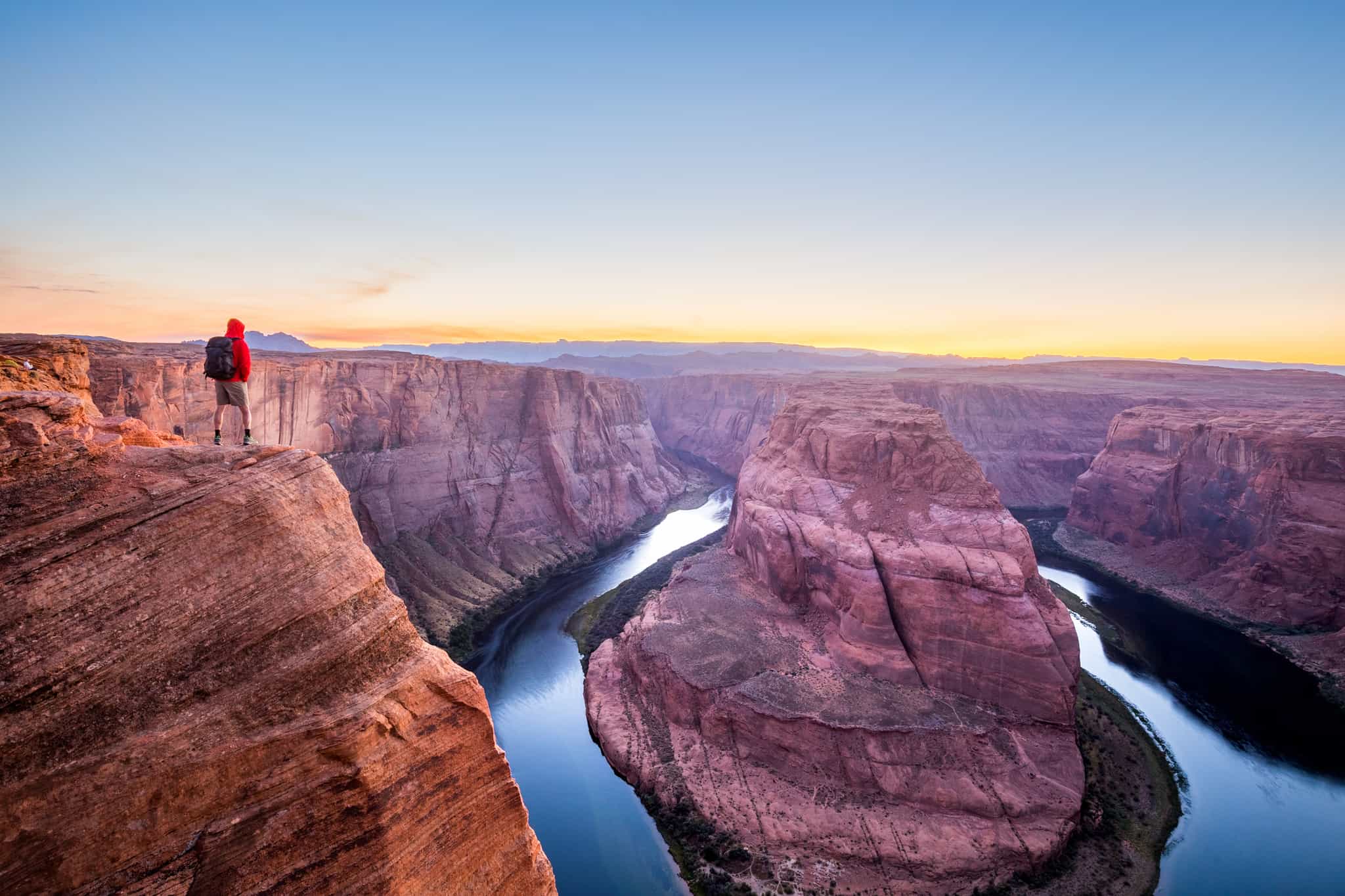
Explore our range of over 200 worldwide adventures
We've got your back
Guaranteed to run
All Much Better Adventures trips are now guaranteed to run. Once you’ve booked your spot you can immediately make your travel arrangements, no uncertainty, no hanging about (excludes 'request to book' departures). Full details
Flexible payments
Secure your spot with the minimum deposit and pay off the remaining balance in as many instalments as you like, with no interest or fees. Full details
Happiness Guarantee
We’re so confident you’ll have an amazing time we’ll put our money on it. Full details
Full financial protection
To give you complete peace of mind Much Better Adventures is backed by ABTOT, ABTA and ATOL memberships. Full details
Tried & Trusted
Much Better Adventures is rated ‘Excellent’ on Trustpilot with over 1000 verified trip reviews averaging 4.8/5.
Connect before you go
You'll be invited to join a WhatsApp group to get to know each other before your big adventure together. Full details
DEPARTURE DATES
Saturday 12th July 2025
to Saturday 19th July 2025
FLASH SALE - Only 2 spots left at 5% off


